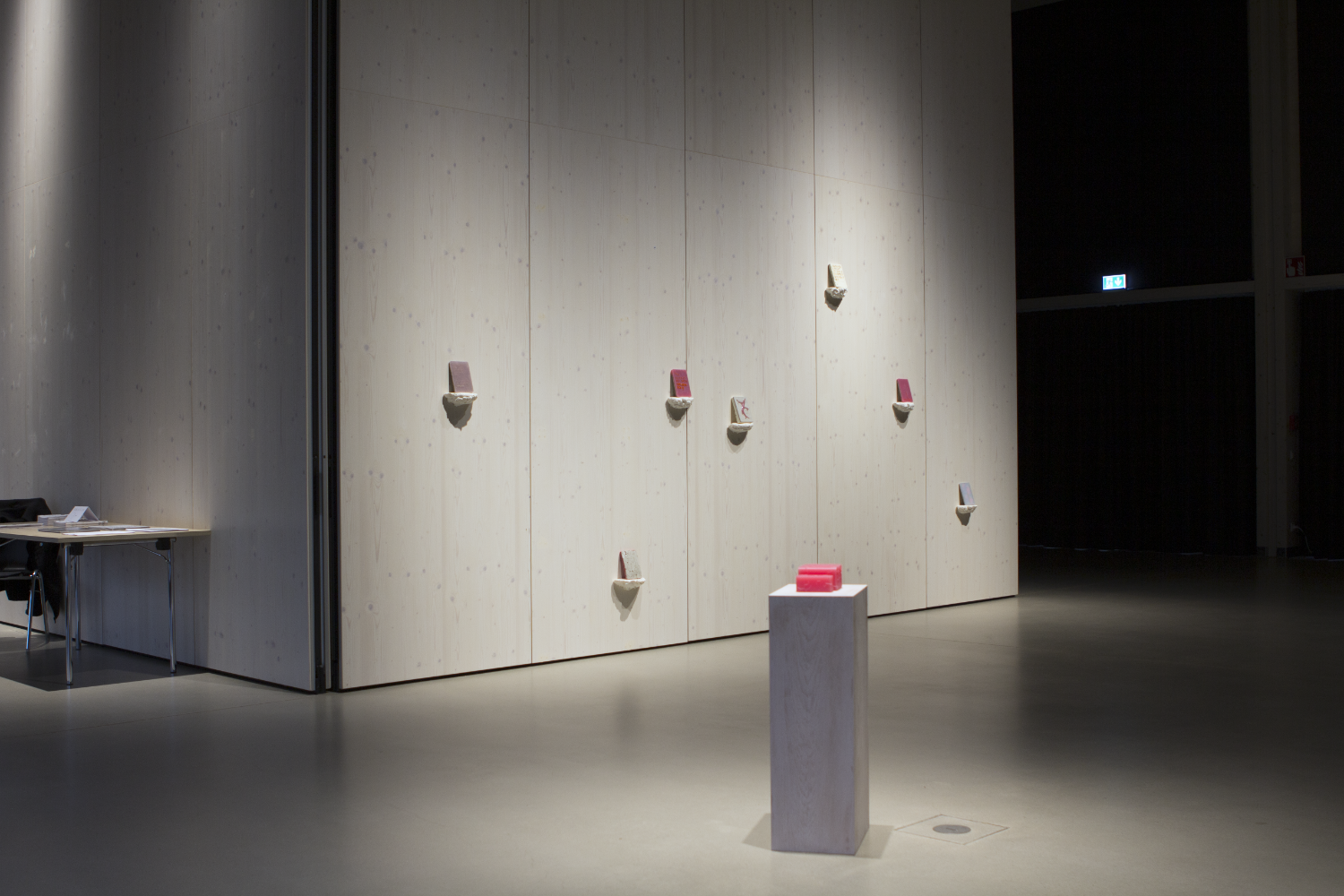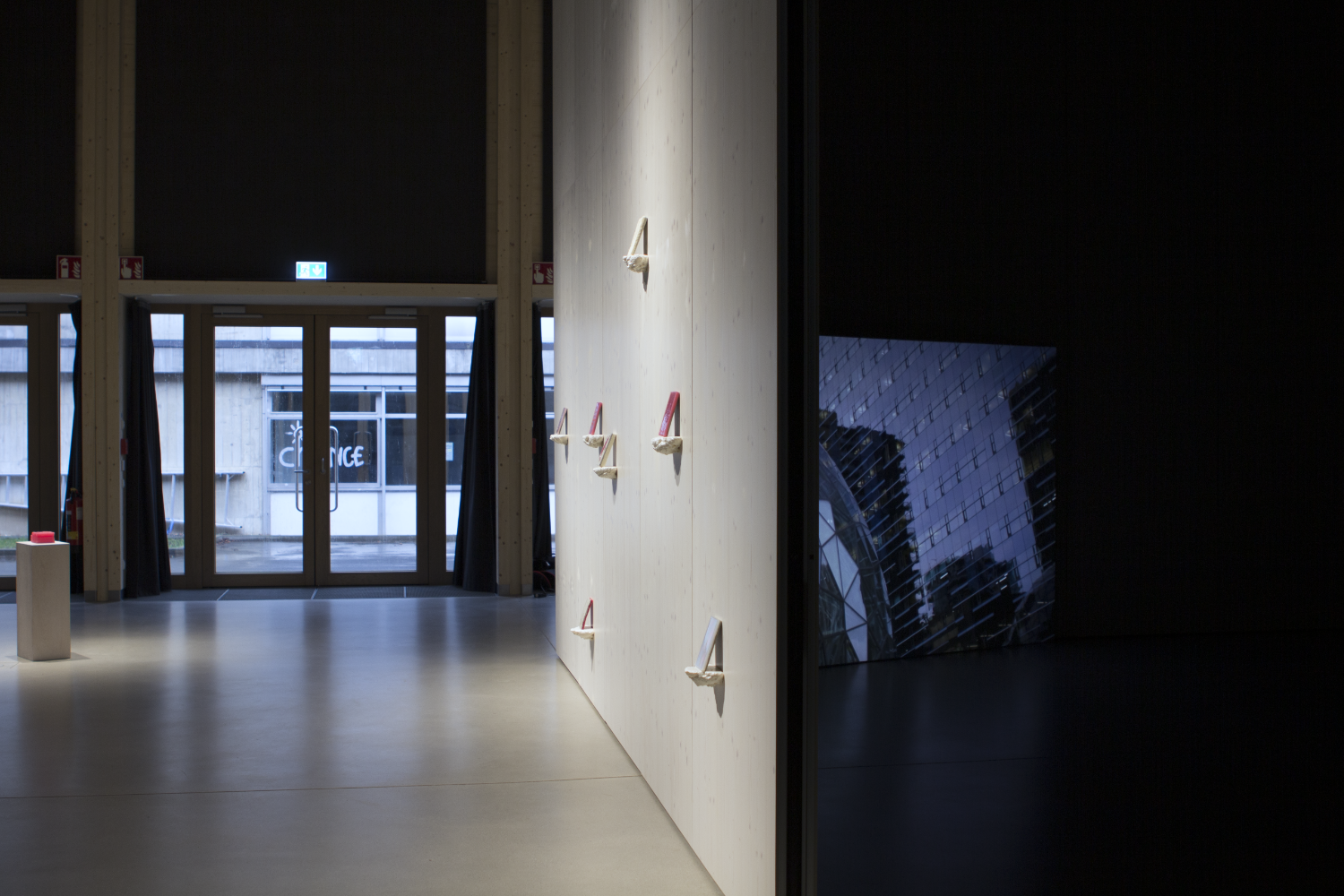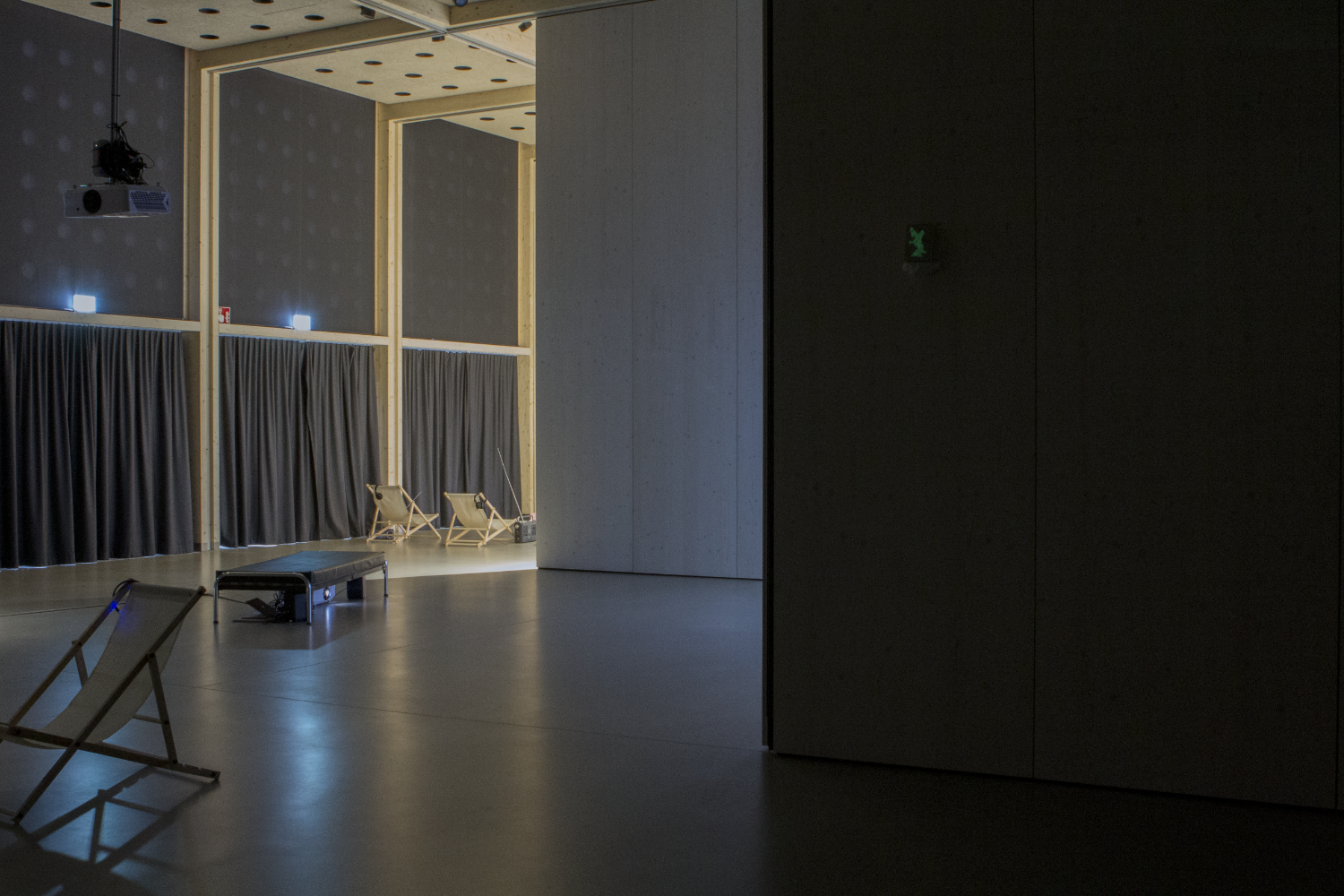VVater
is a series of several small-format tablets and objects. It is a conceptual material study of the long-term project that began with Bunker Fleischstein
🌷
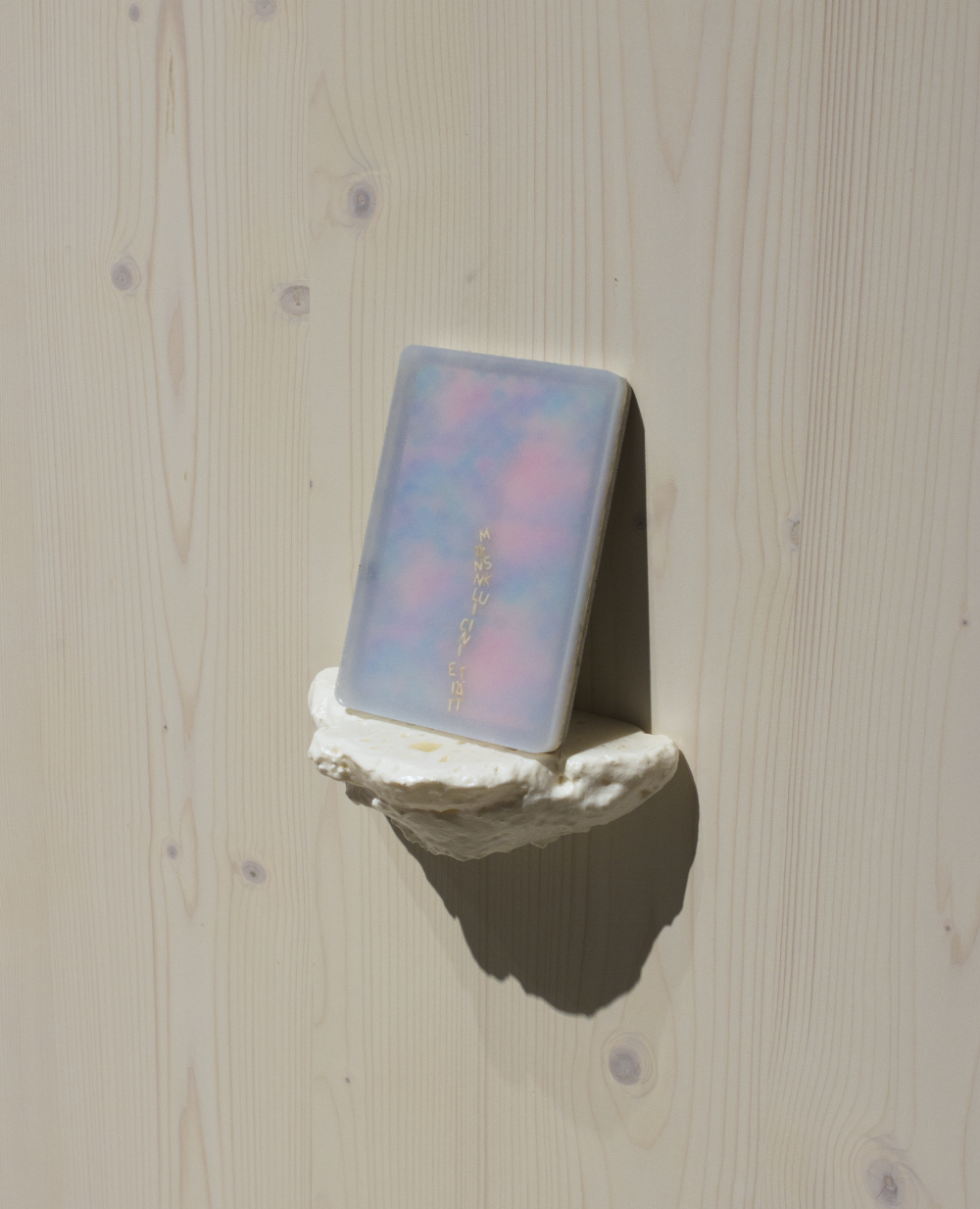
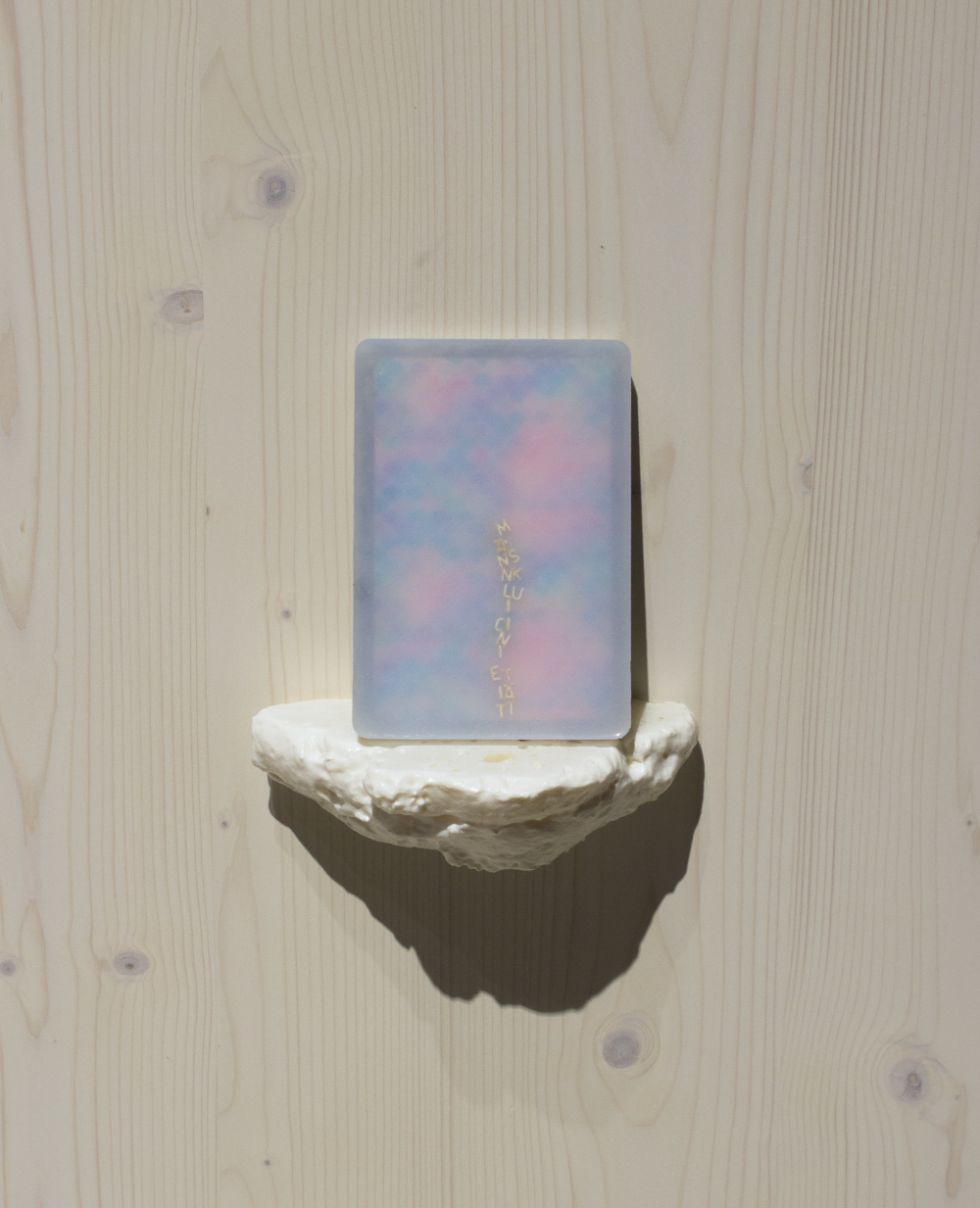
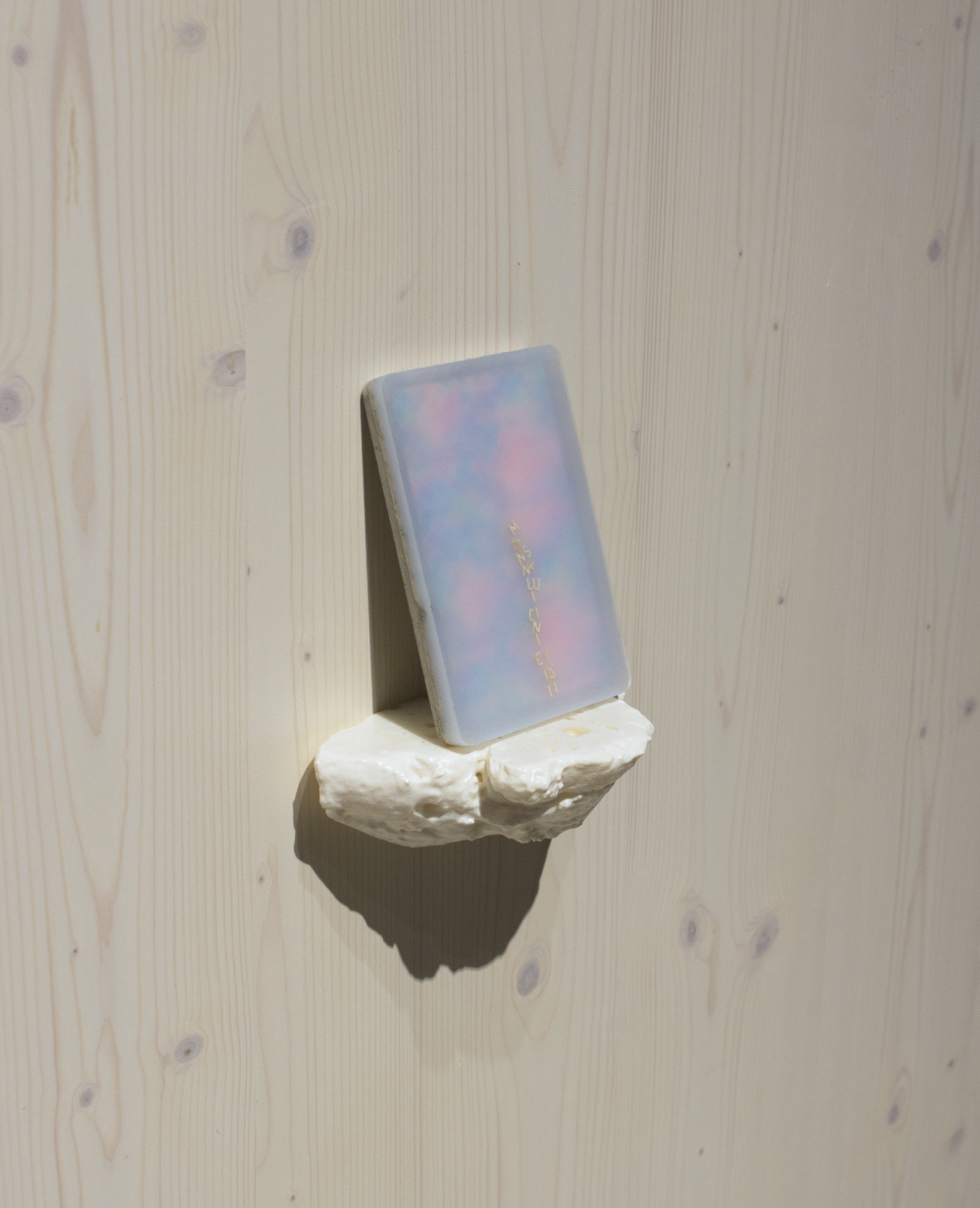

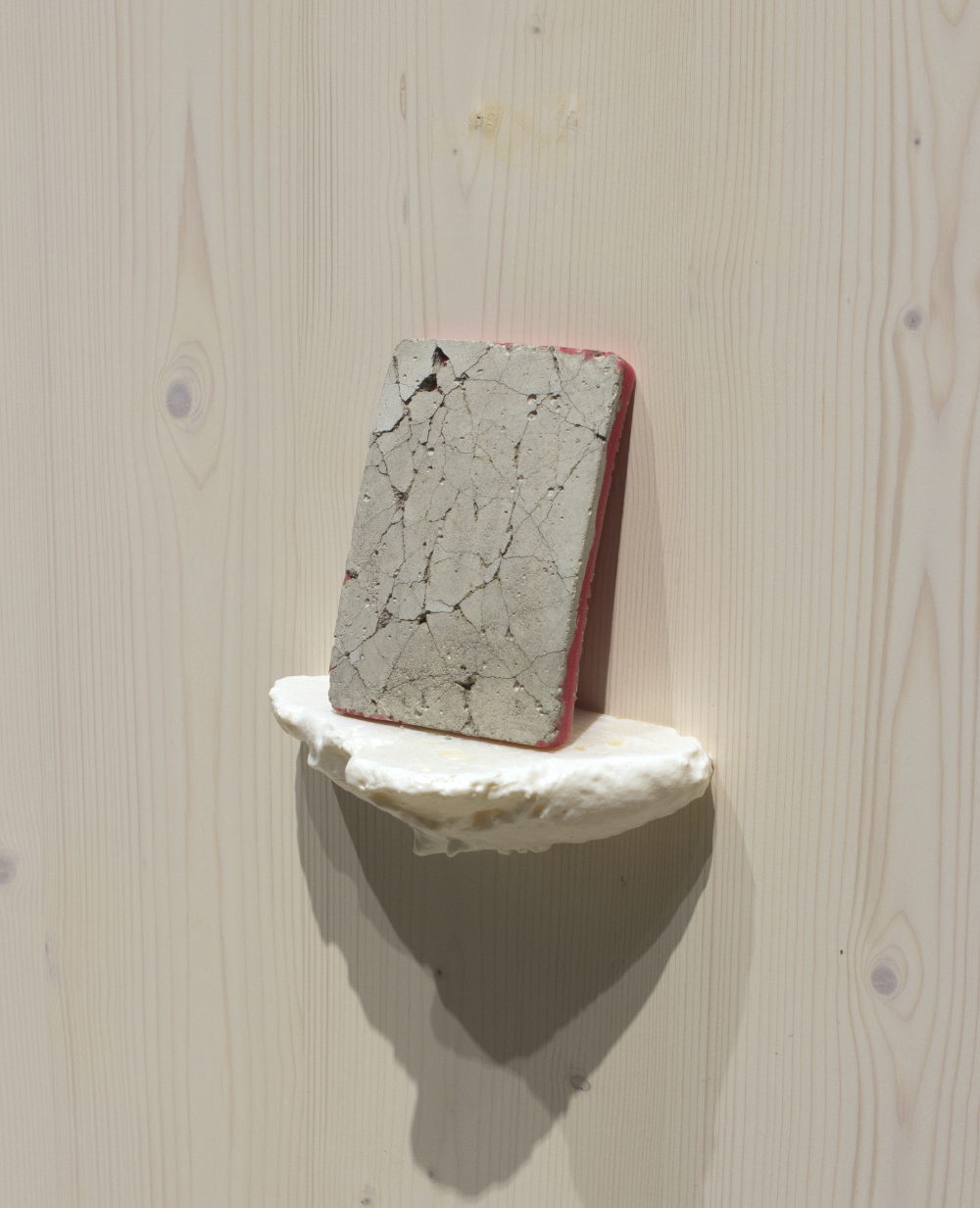

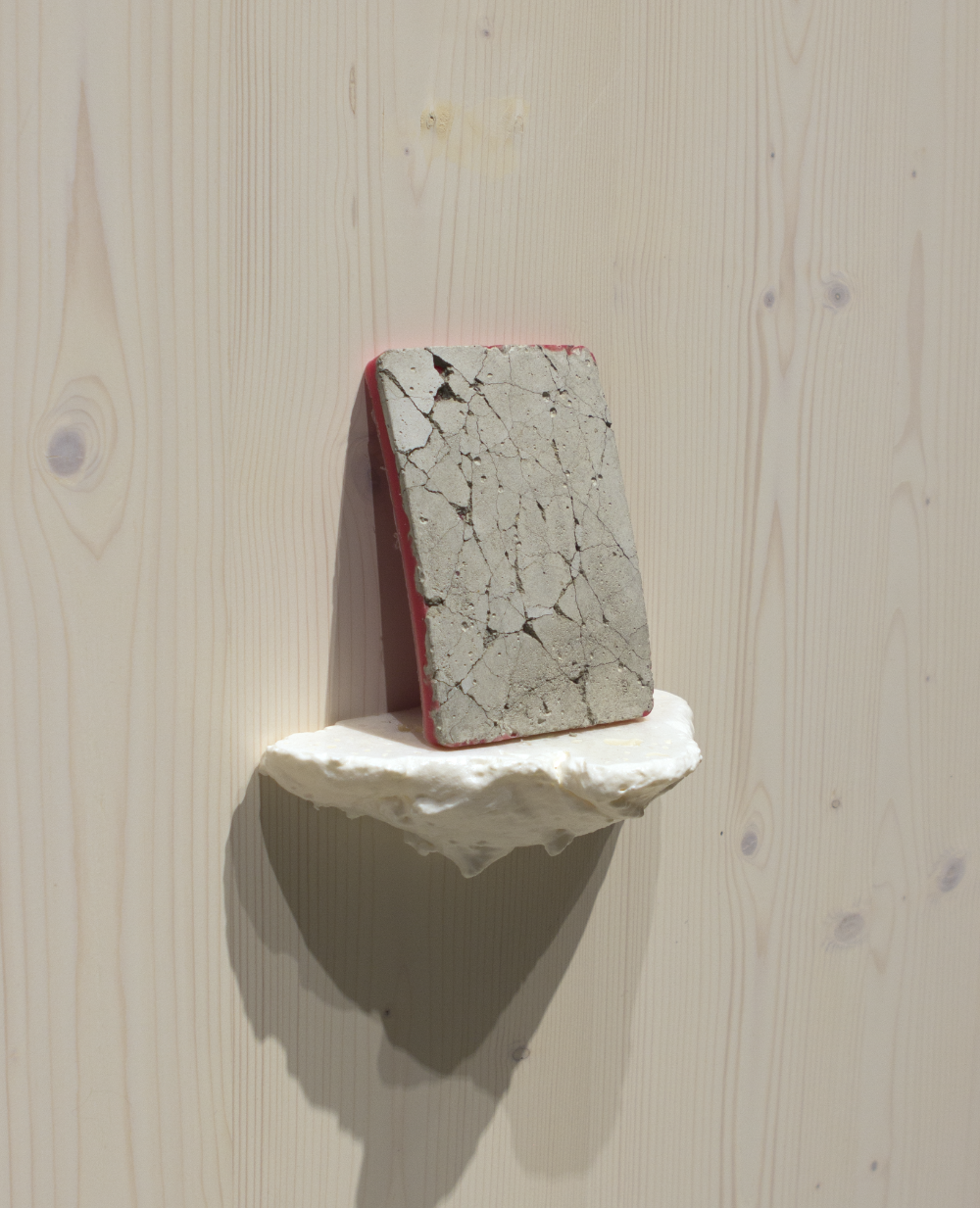

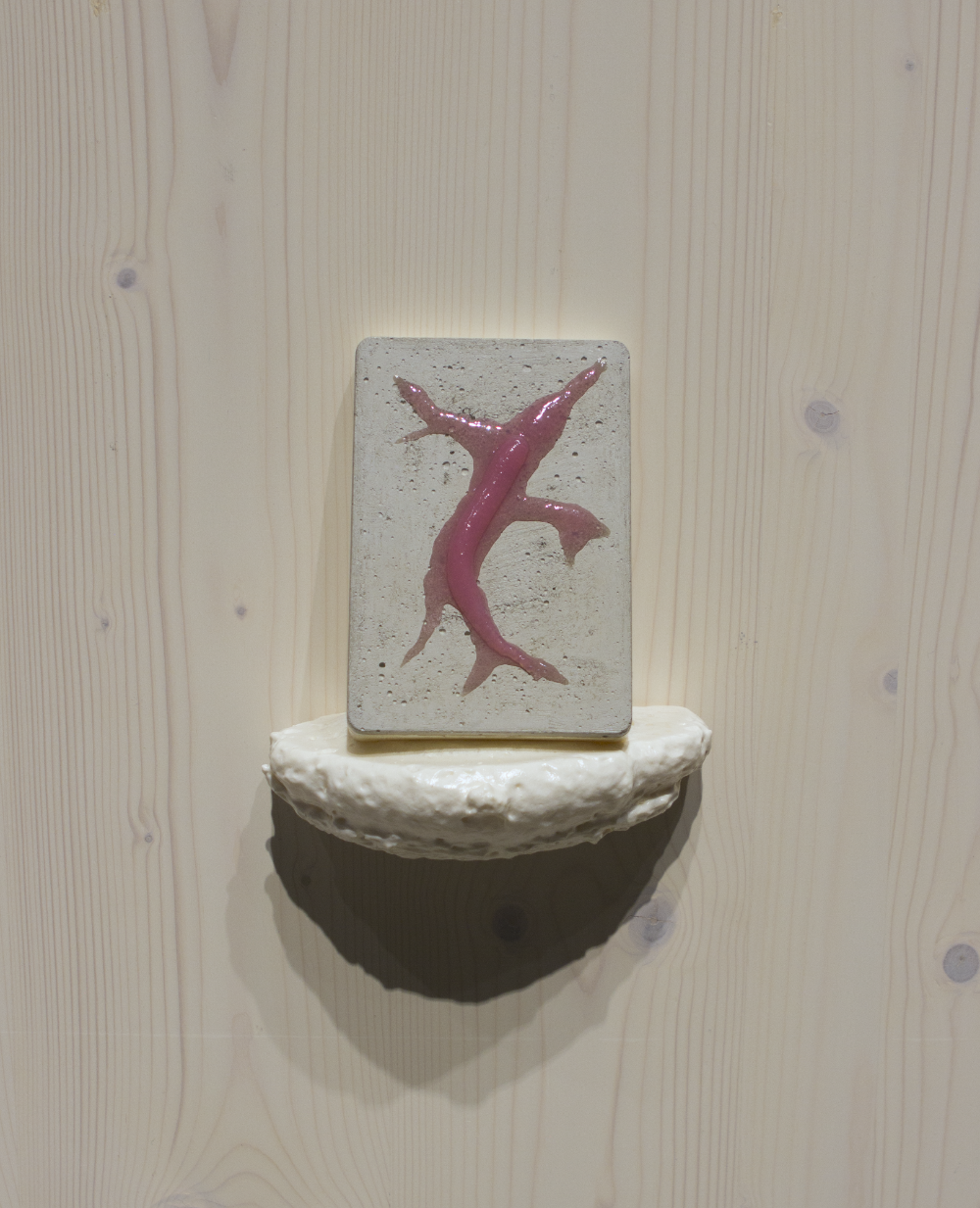
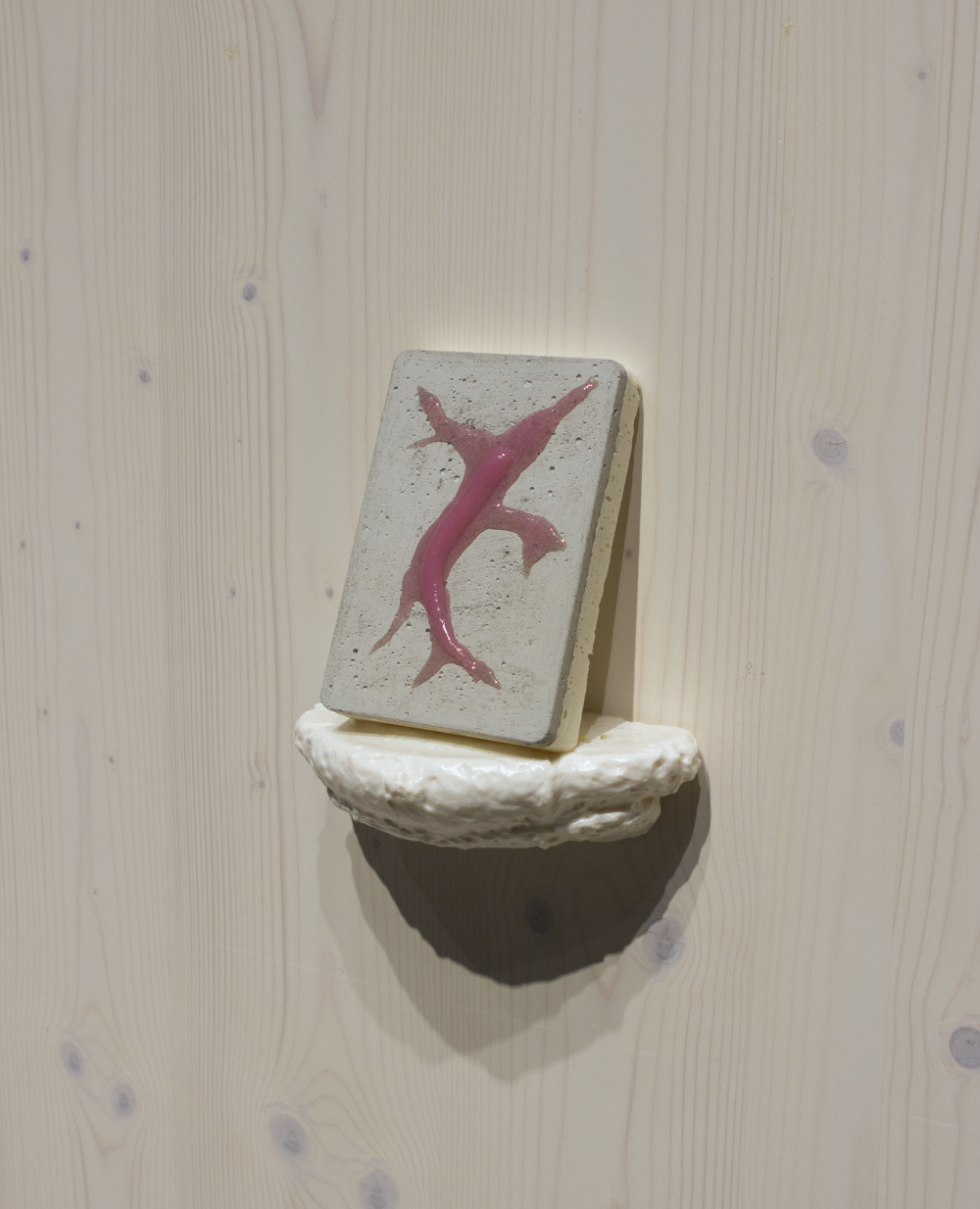
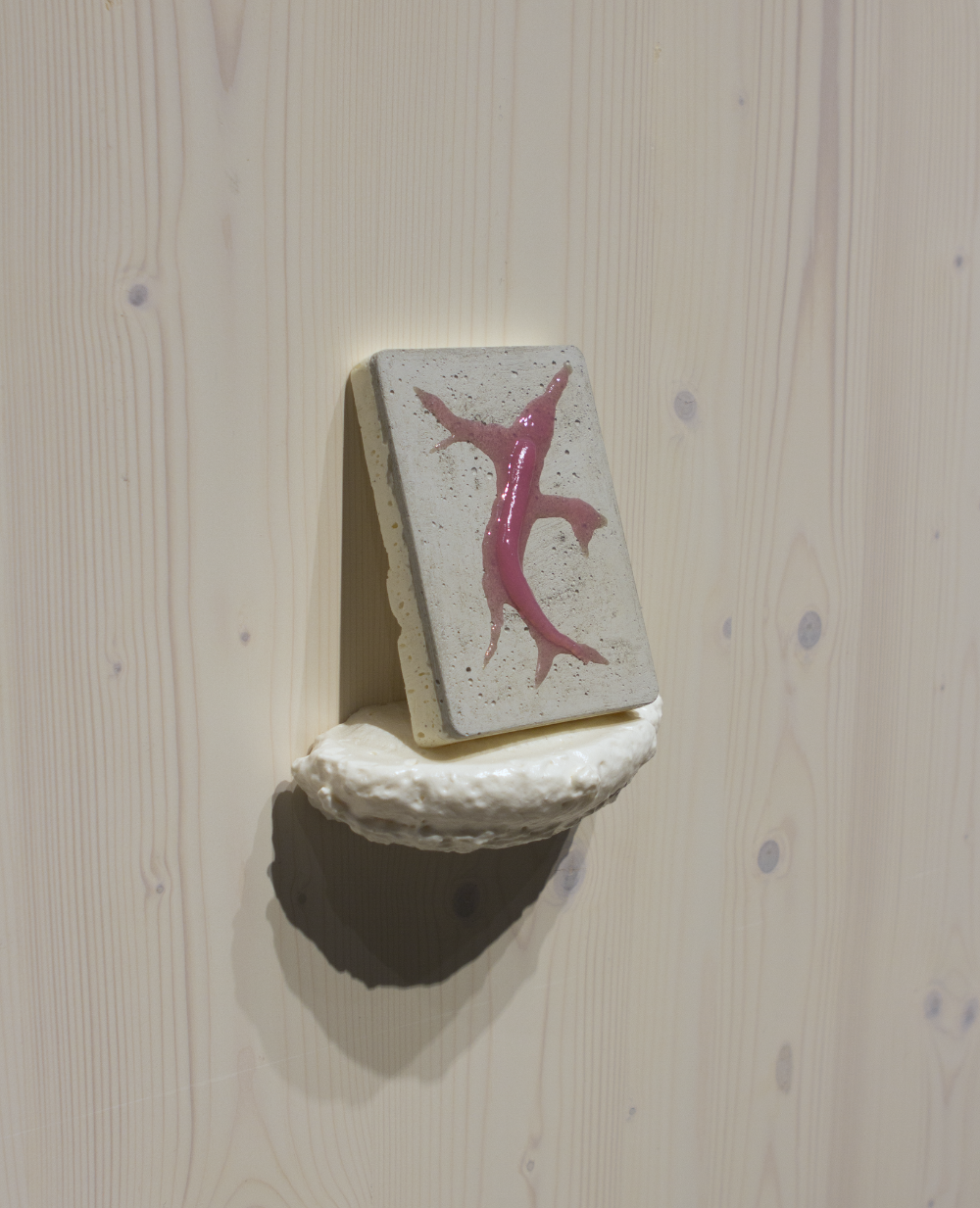

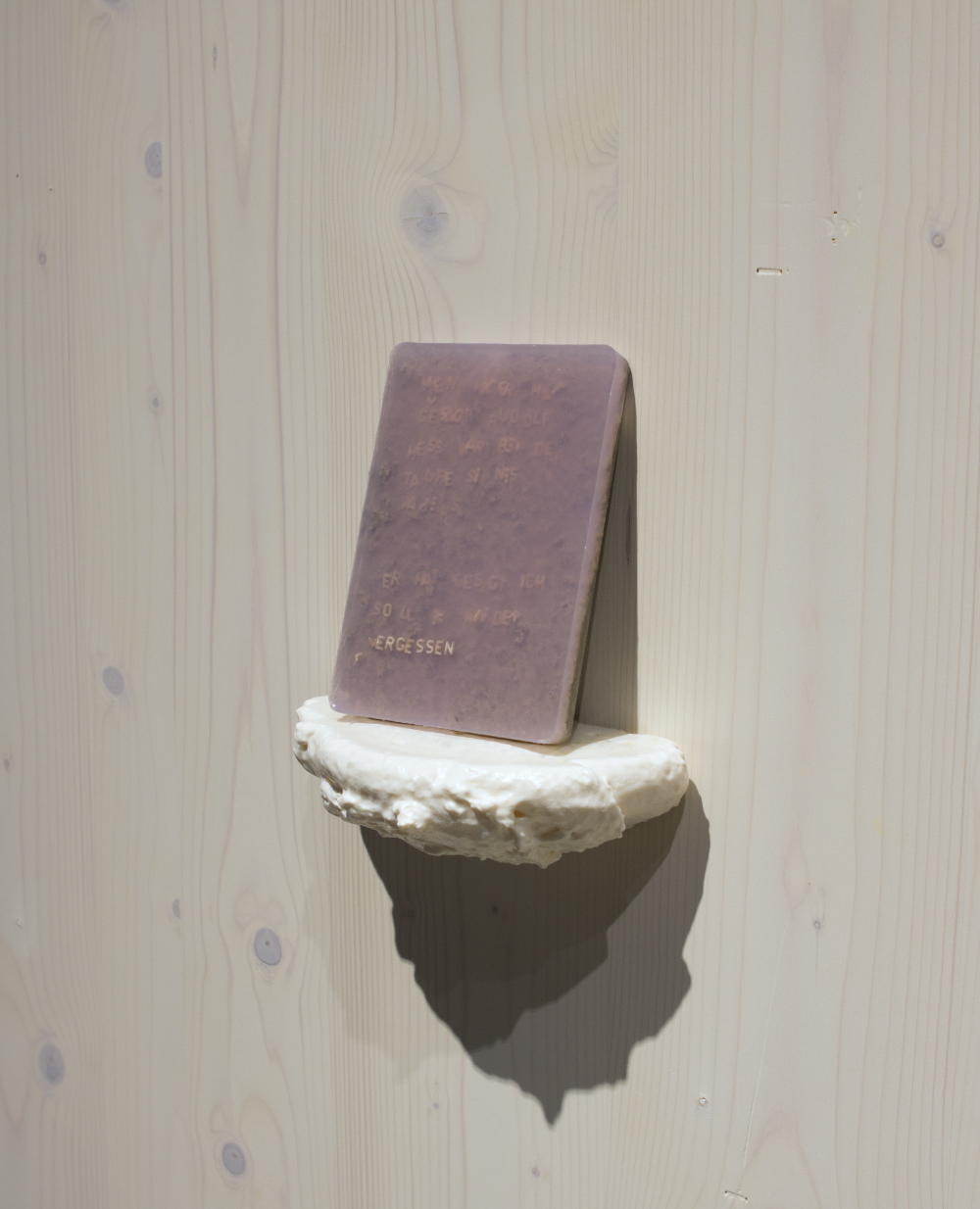
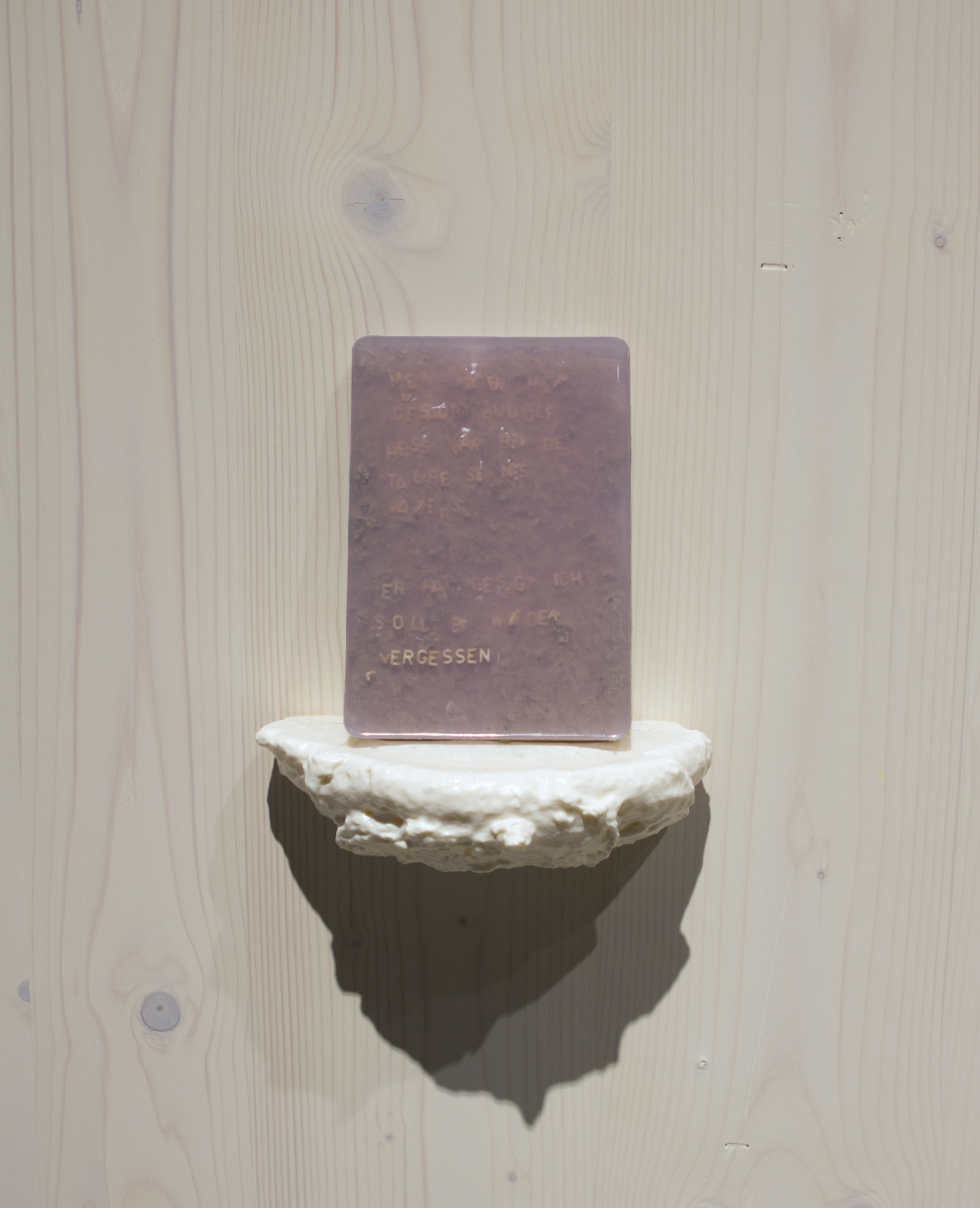
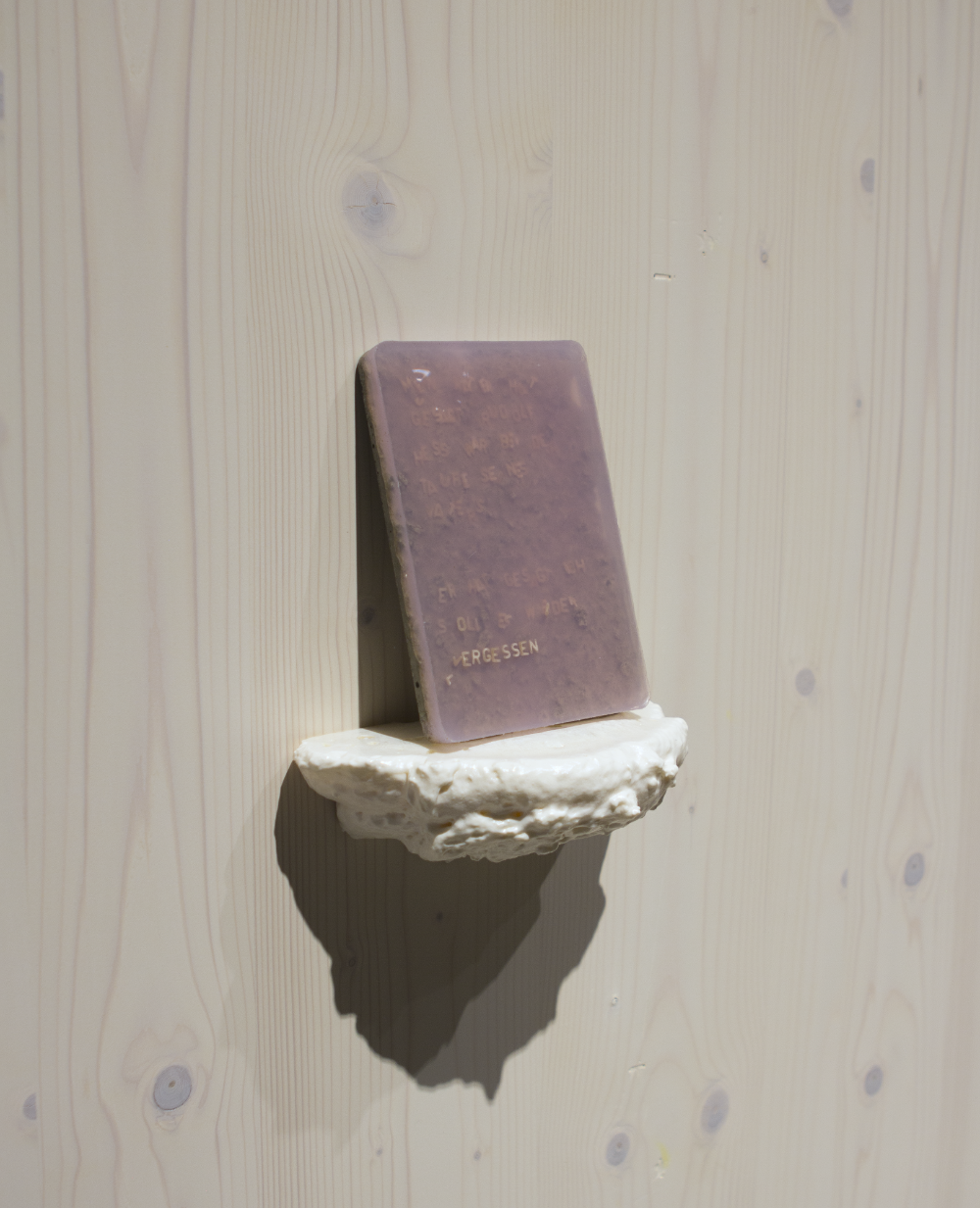


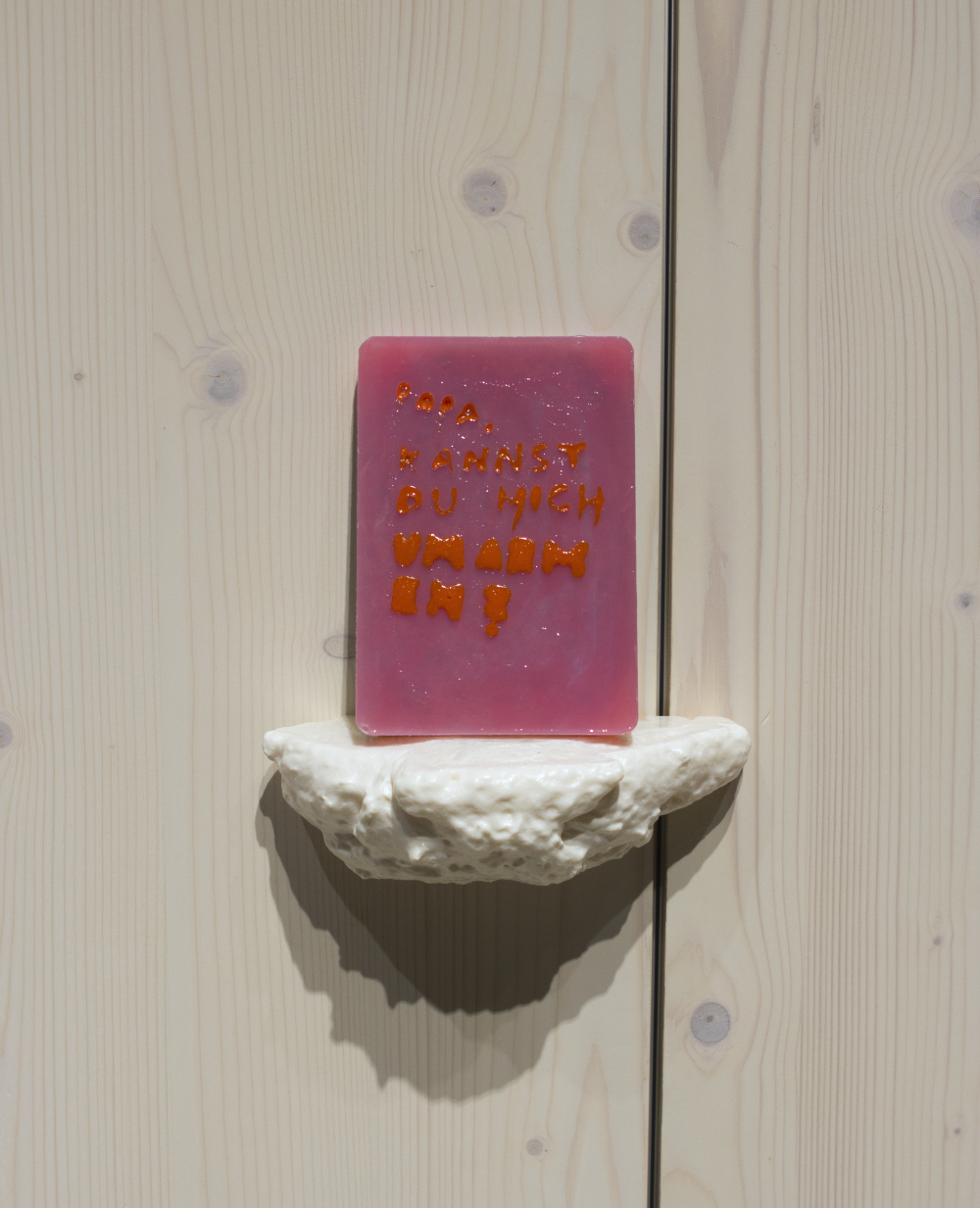
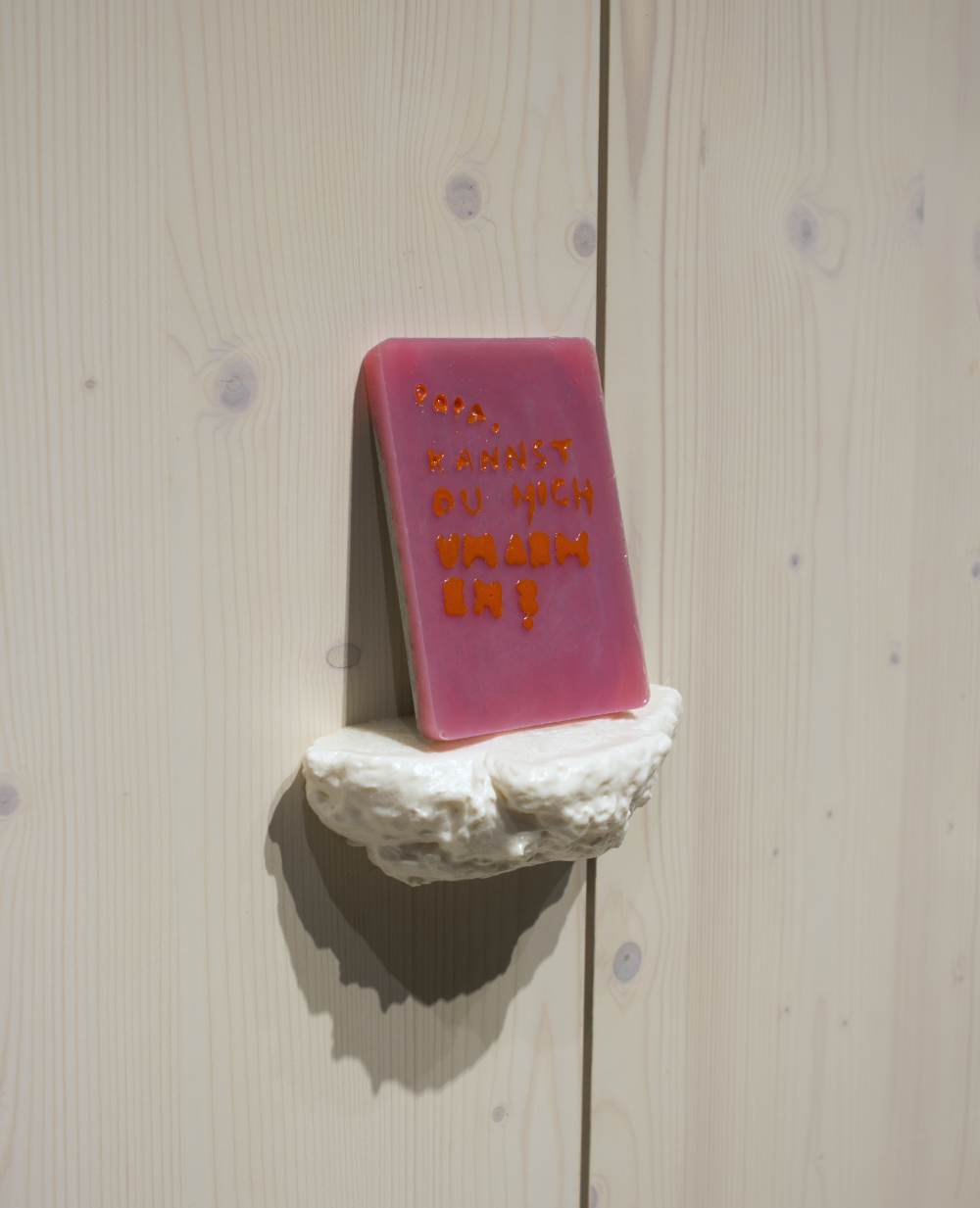

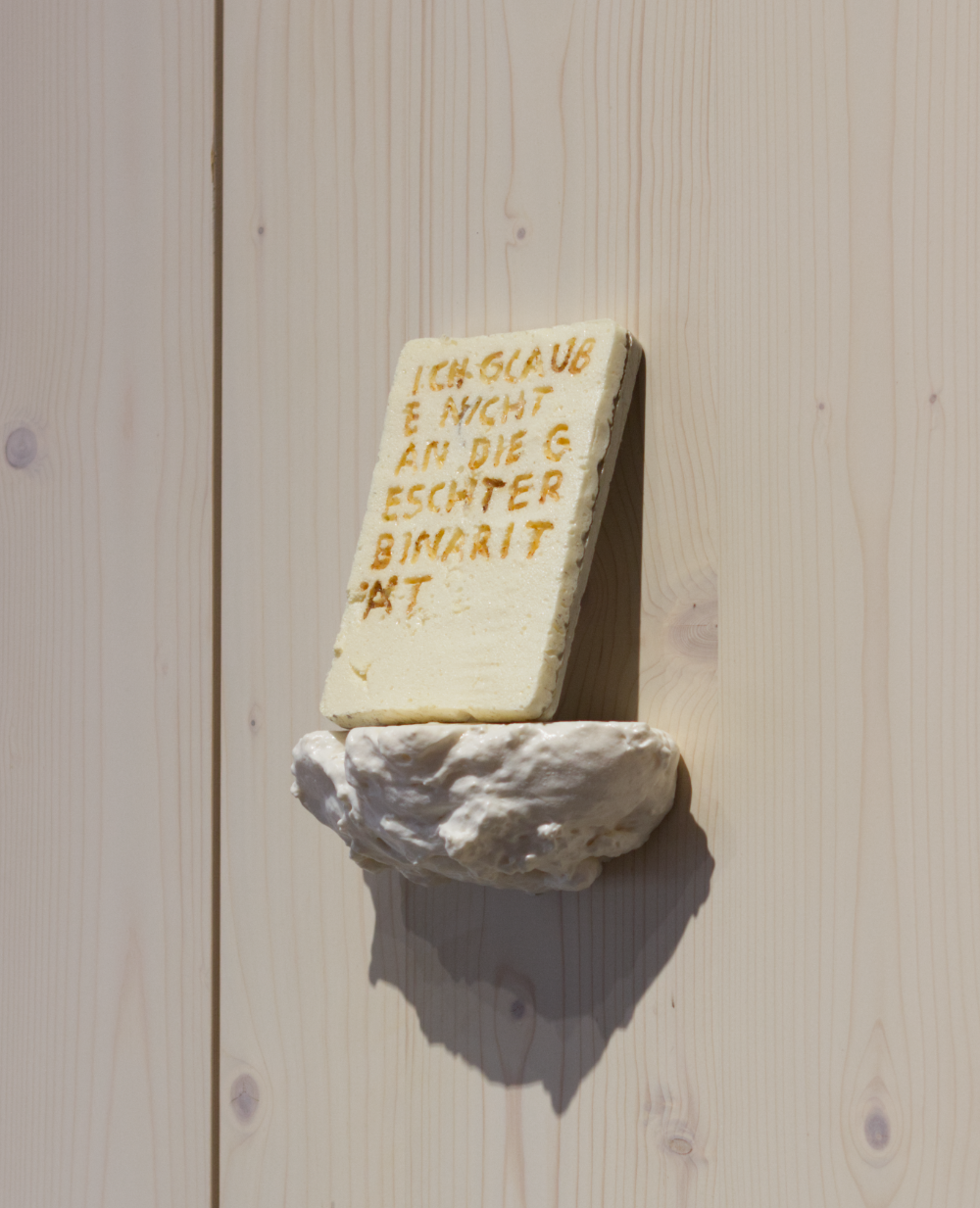

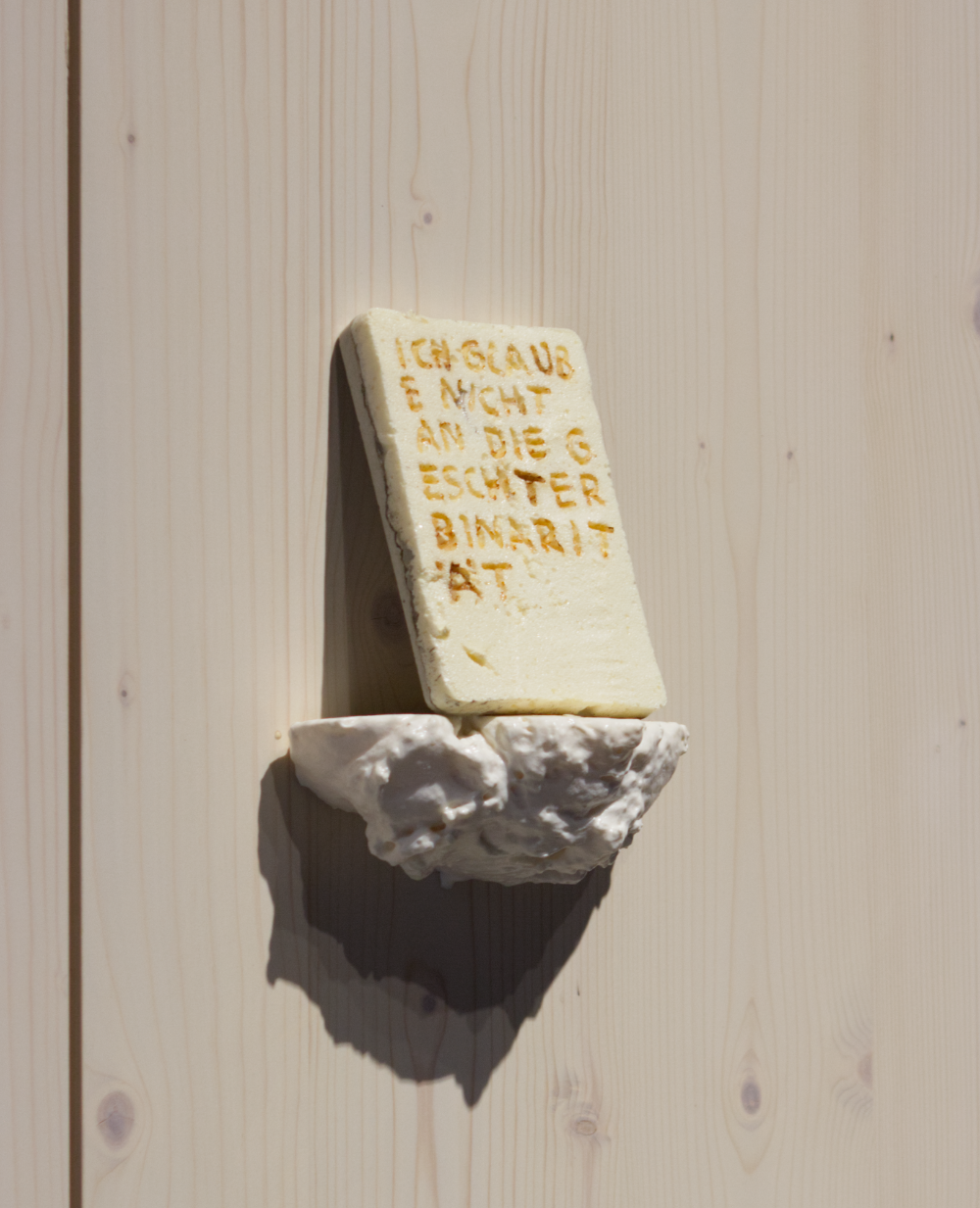

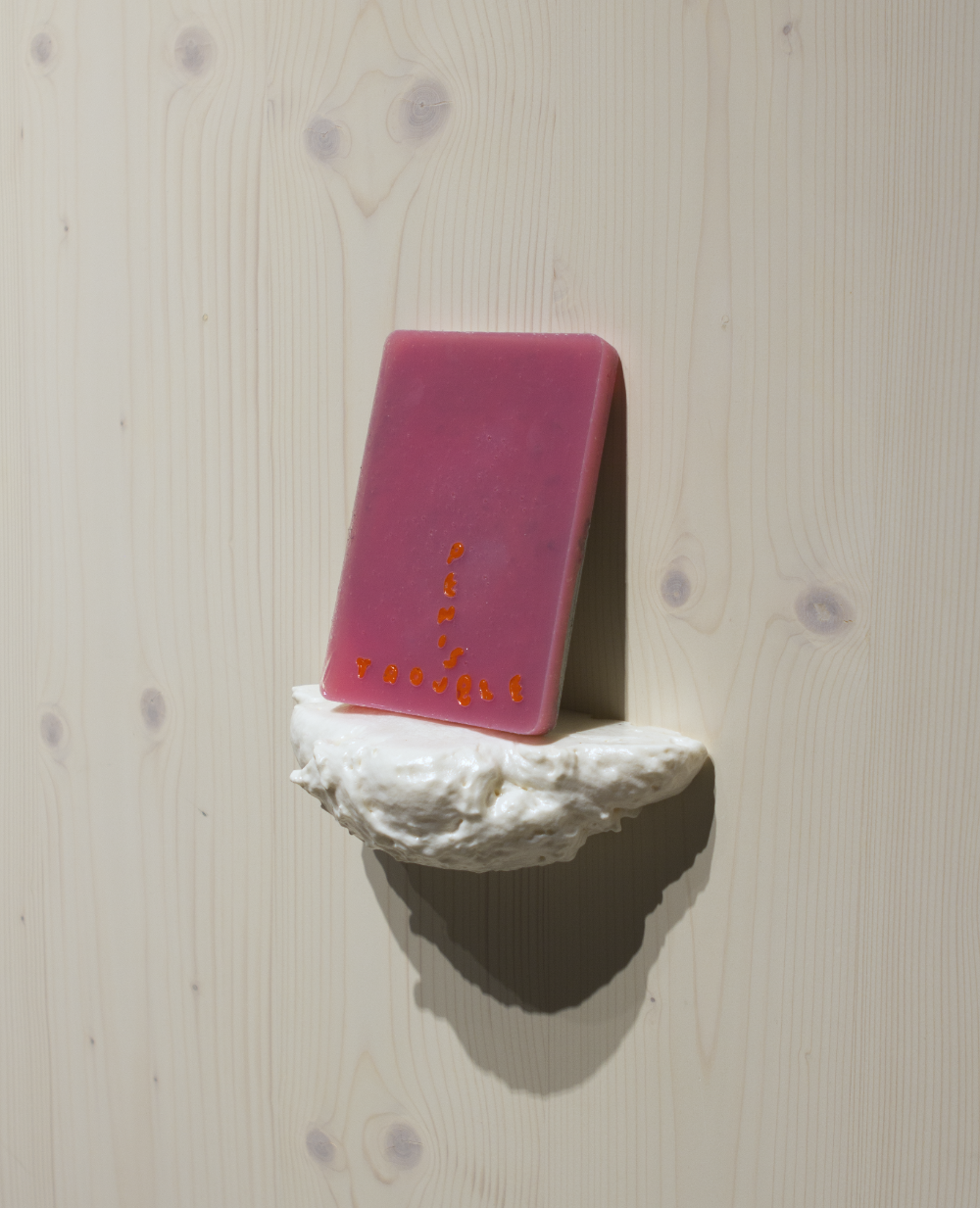
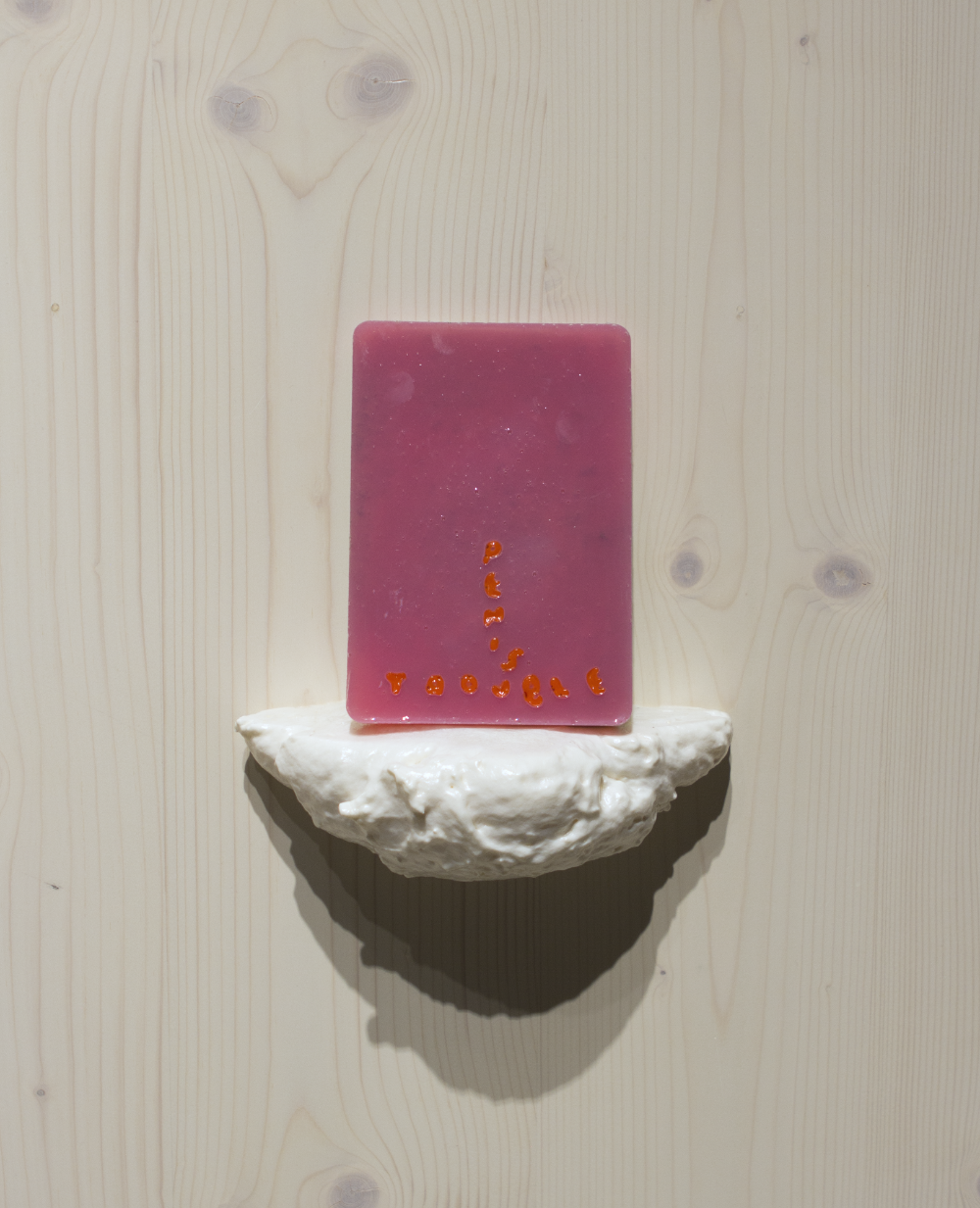
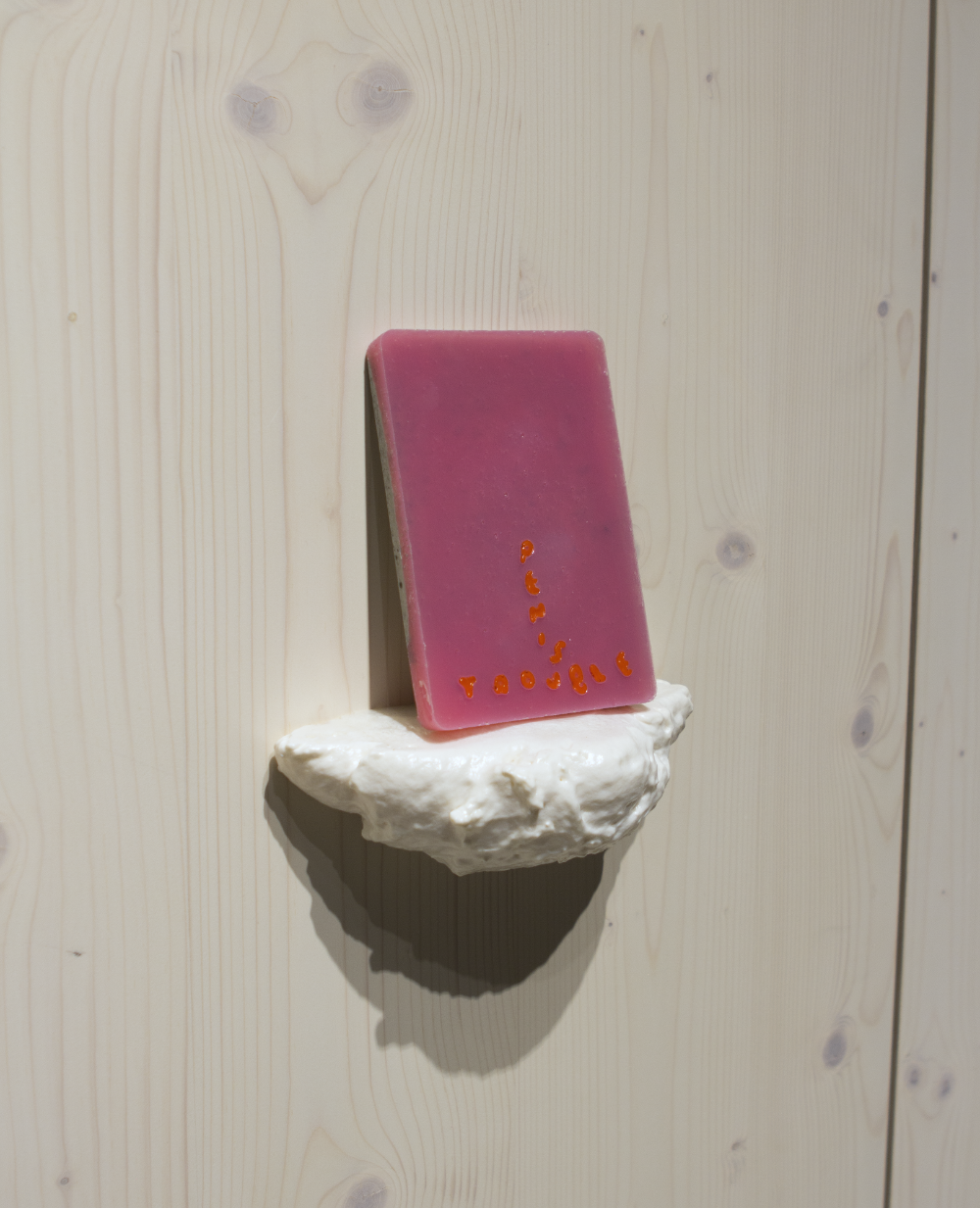

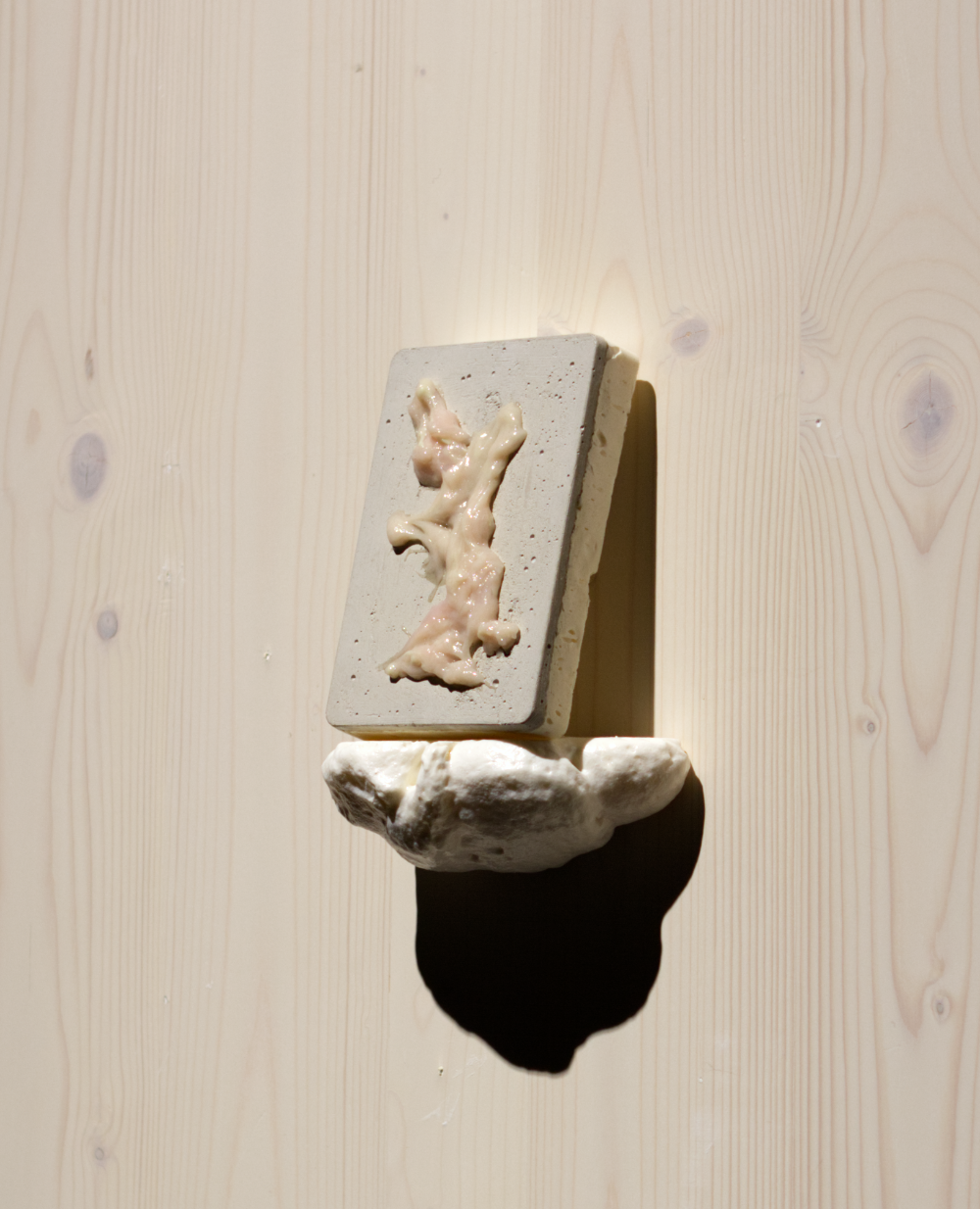
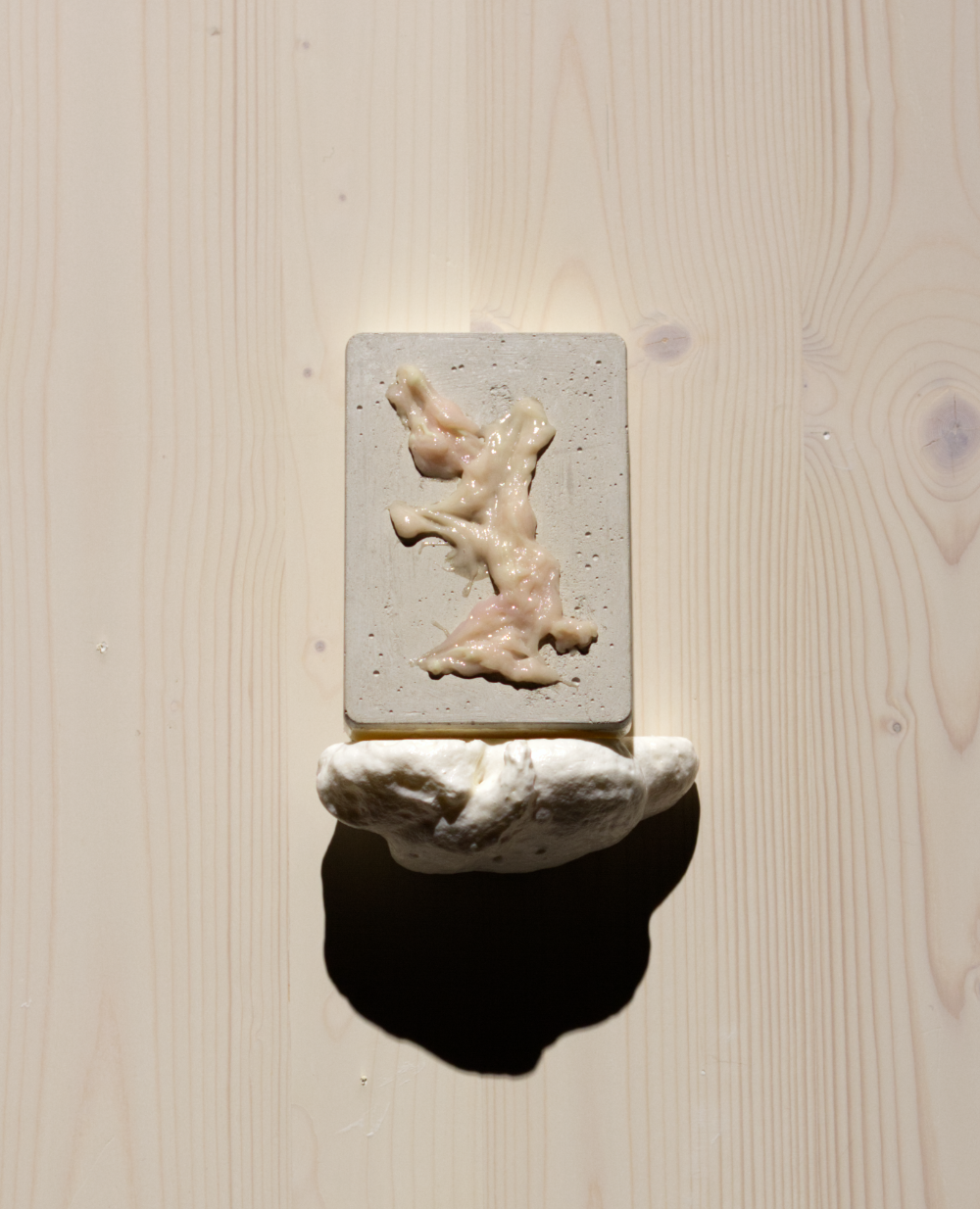
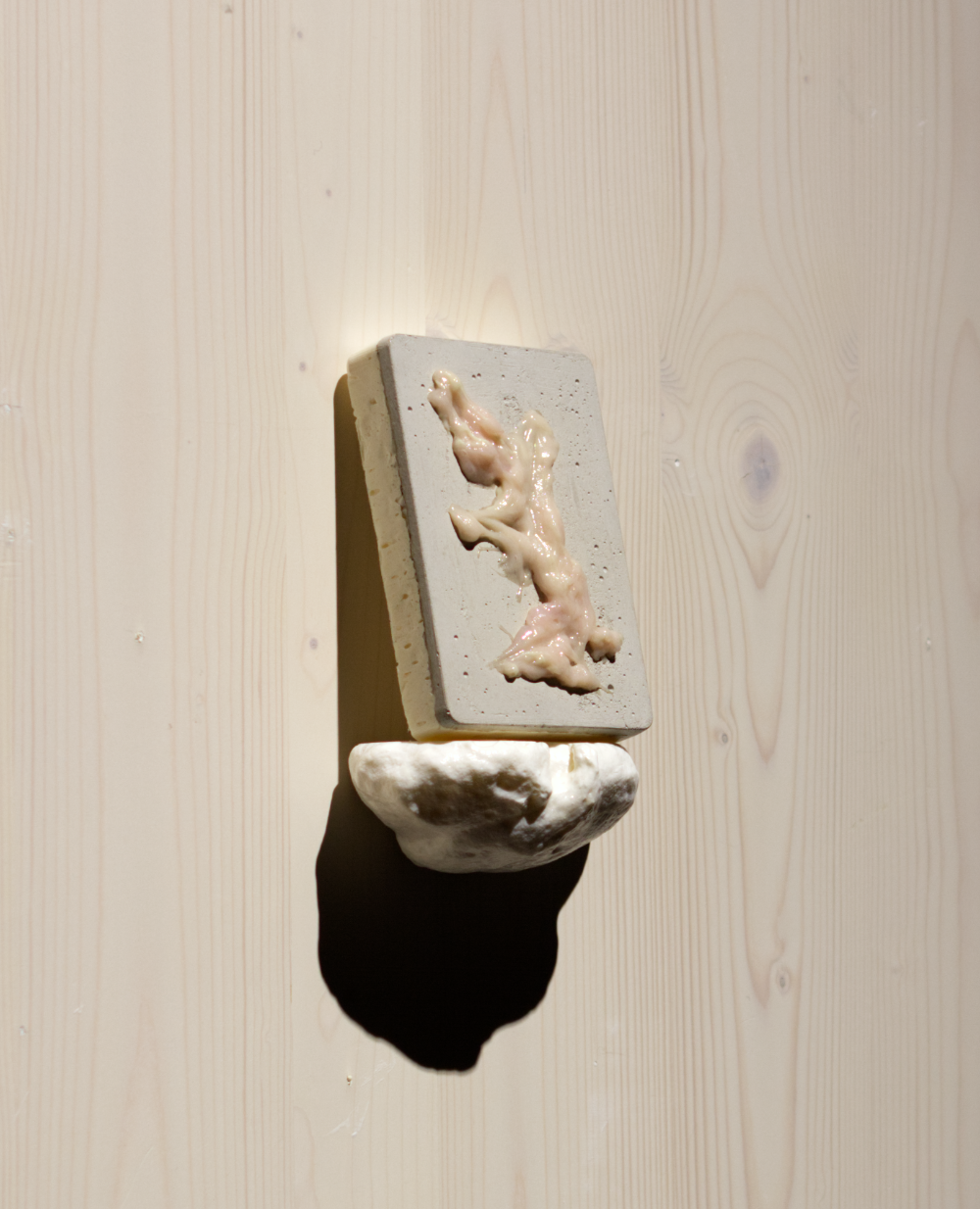
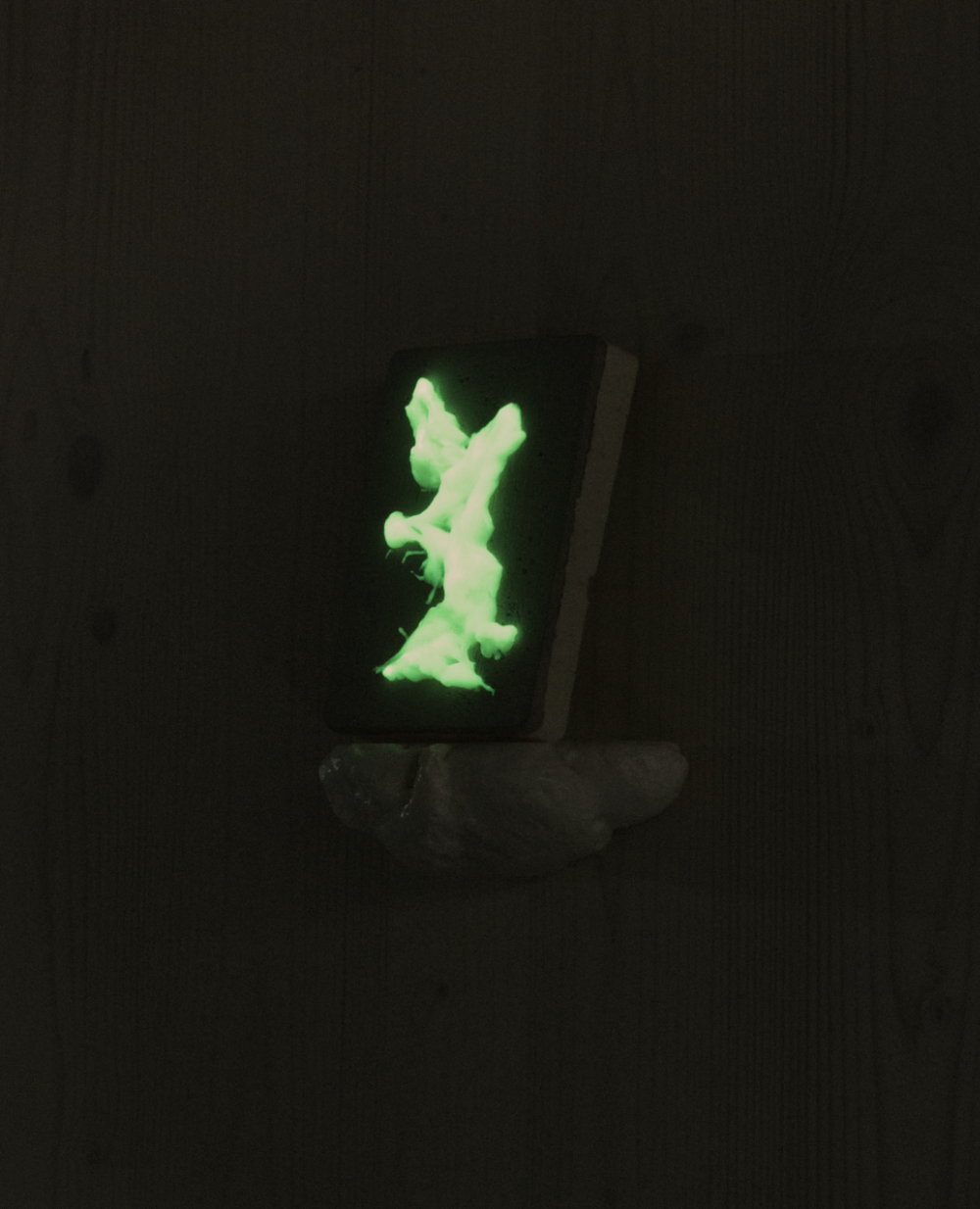
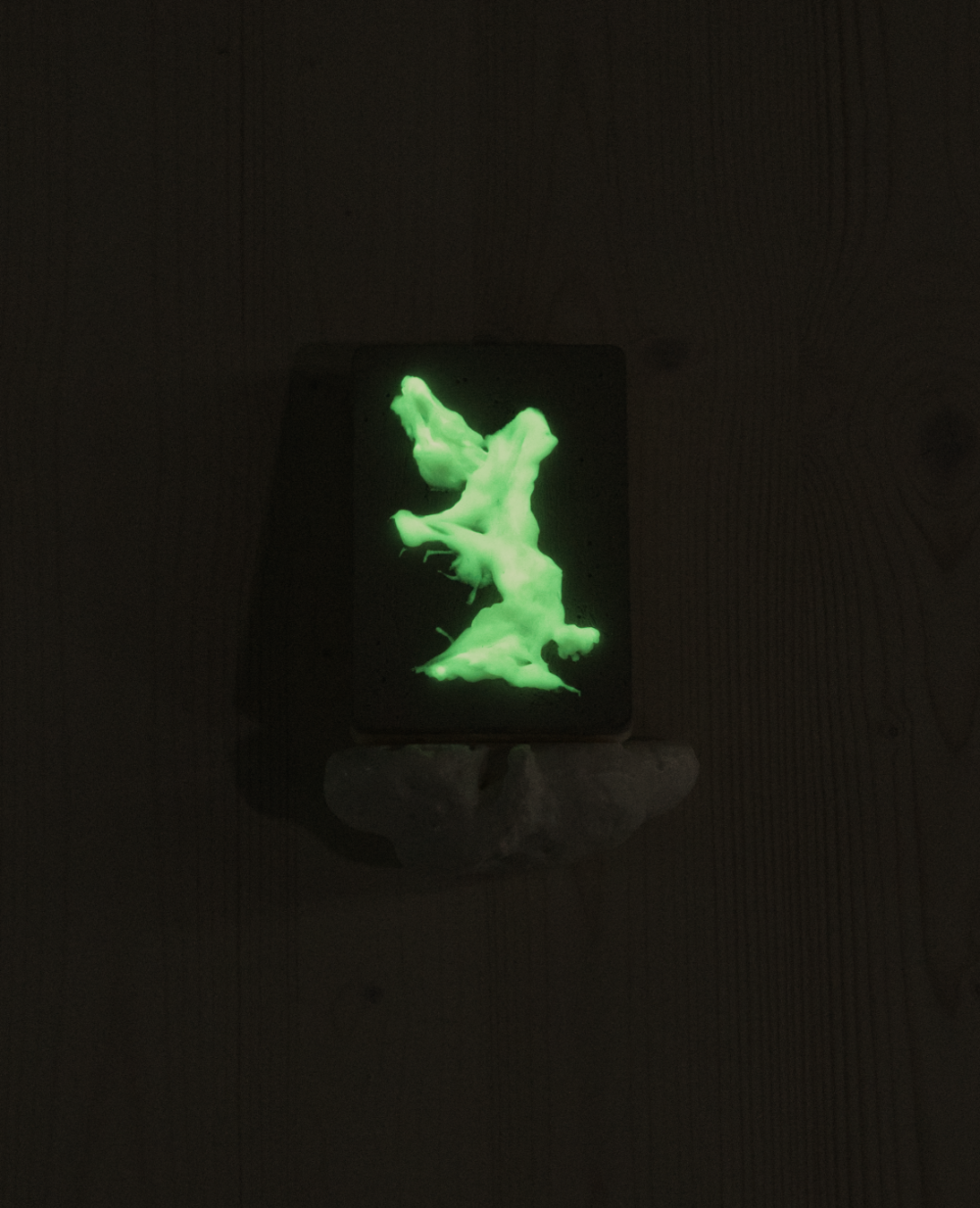
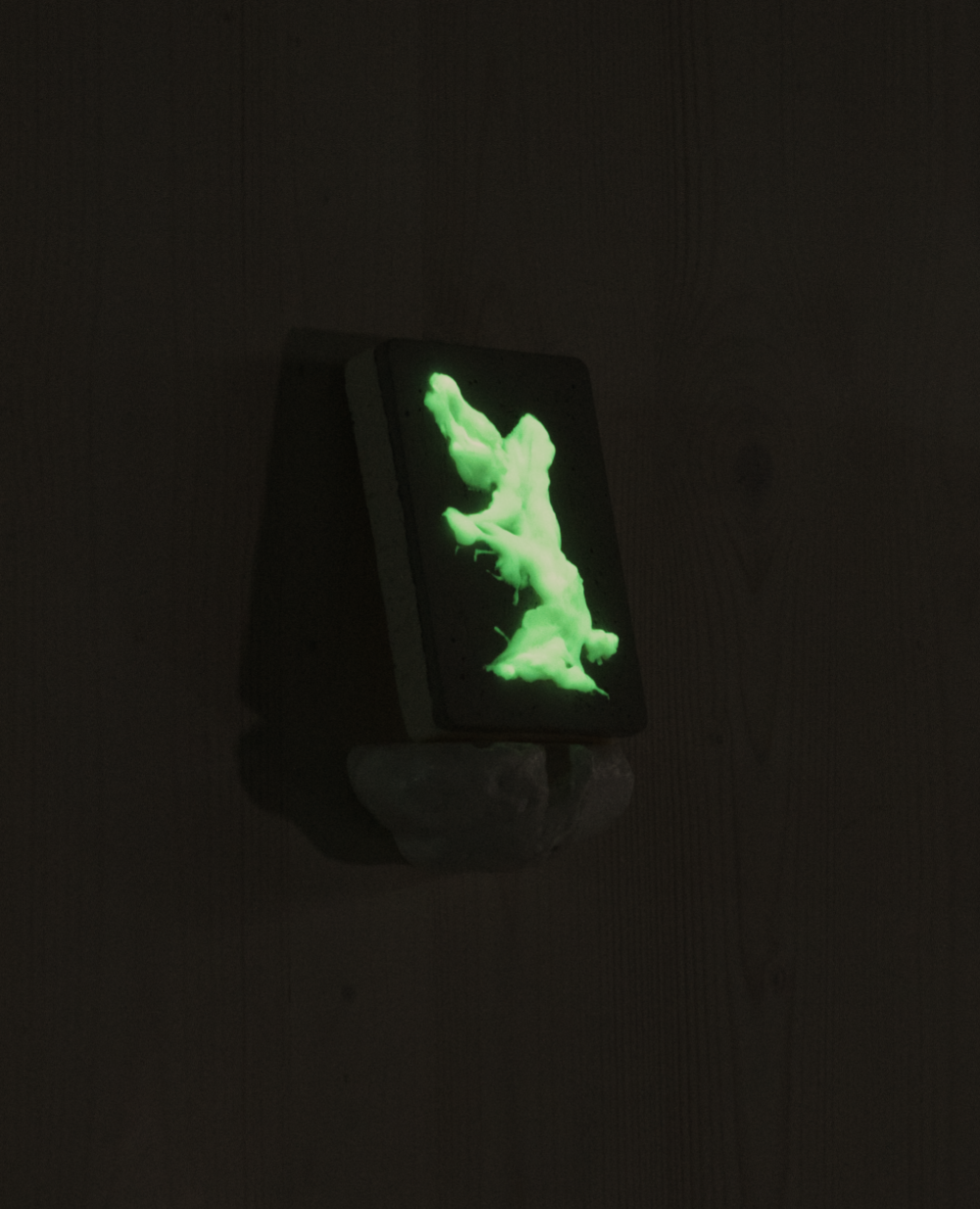
VVater is the first bigger work in the long-term project of deconstructing masculinity and further the dominant gender binary, exploring the history of my family of soldiers, of hardened fathers and intergenerational trauma, materializing soft and fragile practices of parenthood, and embracing neurodivergence.
The used materials are silicone, concrete, foam, glitter-glue, plastic jewelry, alphabet noodles, stickers and window colors.
The used materials are silicone, concrete, foam, glitter-glue, plastic jewelry, alphabet noodles, stickers and window colors.
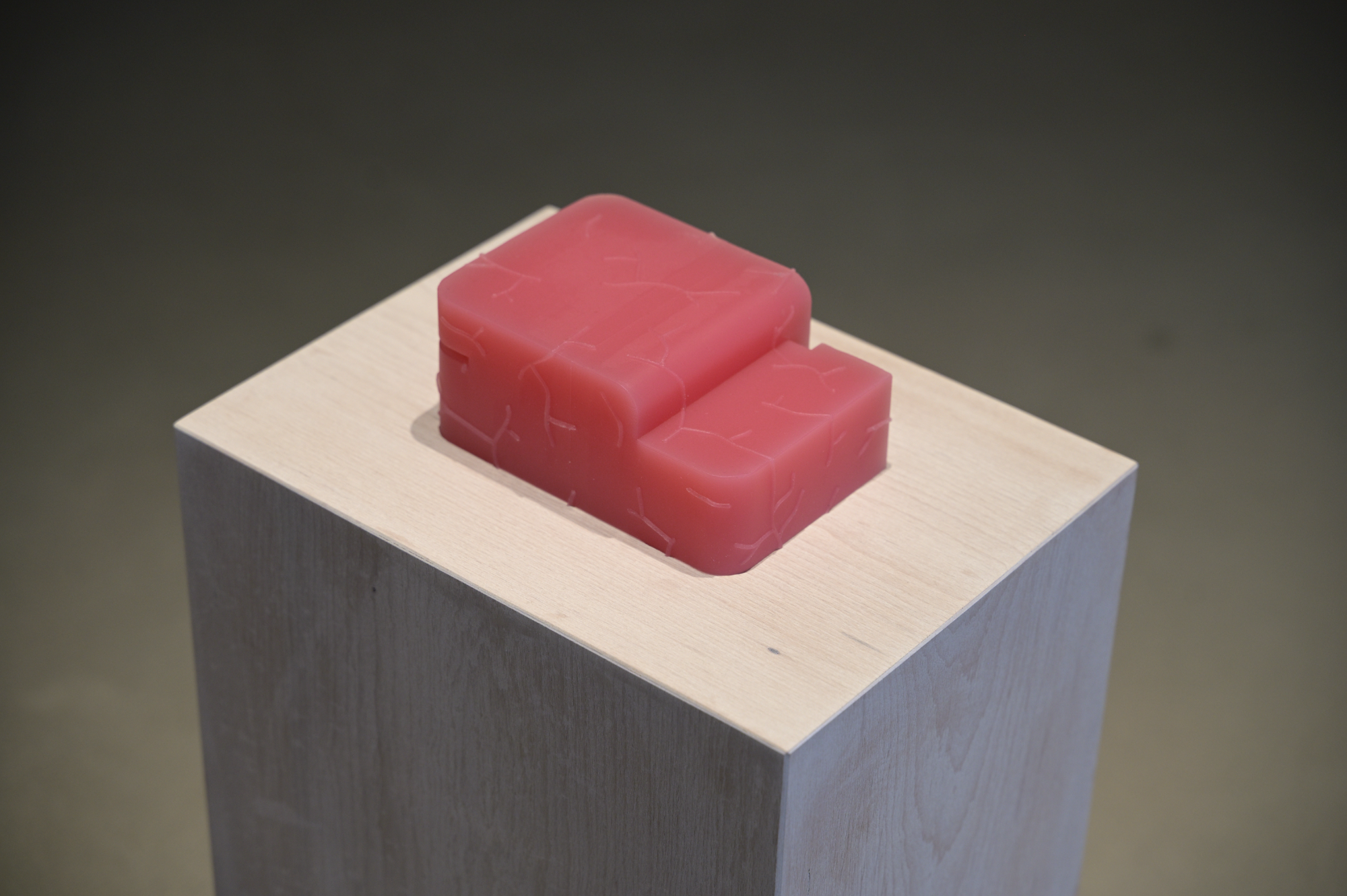
~
"My father said Rudolf Hess¹ was at his father's baptism. Then he told me to forget about it."
This memory, which seems impossible to forget, marks the beginning of an approach to one's own family history and, related to it, intergenerational questions about fatherhood. Central to Chris Schnerr's exploration of the biographical and political dimensions of this research are the changing social notions of masculinity - the question of what ideologies they are based on and how they can be deconstructed.
In Male Fantasies, Klaus Theweleit uses the so-called Freikorps literature of the Weimar Republic to analyze an ideal of the soldierly man in which fascism is already inherent and which paved the way for the National Socialism that followed a few years later.² The violence underlying this understanding of masculinity is taking on new forms today and is evident, among other things, in the increasing extremism of the incel movement³ and its growing links to white supremacy ideologies. In his book, Theweleit picks up recurring metaphors for the threatening Other that needs to be conquered: the red tide, the swamp of the Republic and the wave of blood. Within liquid, things threaten to mix with each other, crossing national and physical boundaries - an idea that contradicts the fascist ideal of purity. The communist enemy, like the woman, is portrayed by the Freikorps as something fluid and thus uncontrollable, which must be countered: the soldierly man Theweleit describes is characterized by hardness and steadfastness. He has body armor against which the floods are supposed to crash.⁴
This dualism of solid and liquid, which in the Freikorps' world of thought serves to clearly separate the nationalistic, male subject from his threats, is taken up by Chris Schnerr in his work VVater, through the choice of materials: concrete, a solid material from which bunkers are also built, and silicone, used among other qualities for its elasticity in the production of sex toys, meet and mix in the small-format wall objects. Both materials are initially liquid, but can become stable, flexible or fragile as they process. The thin layers of concrete in the works are sometimes brittle, and the forms of the silicone are reminiscent of bodily fluids. Text fragments contain quotes and thoughts on gender identity and parenthood that narrate both resistance and vulnerability.
The words "PENIS TROUBLE" are embedded in the pink silicone in one of the objects in clumsy letters: the penis is in trouble - as an outdated symbol of masculinity and domination in the heteronormative and cisnormative logic of still widespread male fantasies. Silicone has long been part of Chris Schnerr's artistic practice. In his exploration of corporeality and queer sex practices, dildos, often made of silicone, have been a recurring part of his work - as sculptural entities as well as elements of participatory performance. Paul B. Preciado writes about this in his Contrasexual Manifesto: "[...] the dildo becomes a virus that corrupts the truth of sex and the genitals. It is not faithful to the organs’ nature. It is the servant that rebels against its master and, proposing itself as an alternative route to pleasure, turns the master’s authority into an object of derision."⁵
The work VVater (a neologism of water and the german word for father, Vater) counters traditional notions of masculinity with humor and with a certain fragility and tenderness. Outdated practices of harsh parenting are replaced by a father role that sees itself as loving and caring. Thus, inspired by creative techniques used by his own child, materials such as glitter glue, window paint, and pasta letters also appear in Chris Schnerr's work. While we witness reactionary backlashes against sexual and gender diversity, the deconstruction of hardened ideals of masculinity remains a necessary and ongoing artistic, personal and social process.
¹ Rudolf Hess was part of the NSDAP and in 1933 appointed to Hitler’s deputy by Hitler himself.
² Theweleit, Klaus: Männerphantasien. Matthes & Seitz. Berlin 2. Edition. 2020 [1977/78].
³ Incel is a combination of the English terms involuntary and celibate and is the self-designation of a group that emerged in the U.S. context in Internet forums. Incels are characterized by extreme misogyny and believe they have a natural right to sex, which they are denied by the women they hate.
⁴ Theweleit, Klaus: Männerphantasien. Matthes & Seitz. Berlin, 2. Edition. 2020 [1977/78], p. 283-305; 693-729.
⁵ Preciado, Paul B.: Countersexual Manifesto. Columbia University Press, [2018], p. 69.
This memory, which seems impossible to forget, marks the beginning of an approach to one's own family history and, related to it, intergenerational questions about fatherhood. Central to Chris Schnerr's exploration of the biographical and political dimensions of this research are the changing social notions of masculinity - the question of what ideologies they are based on and how they can be deconstructed.
In Male Fantasies, Klaus Theweleit uses the so-called Freikorps literature of the Weimar Republic to analyze an ideal of the soldierly man in which fascism is already inherent and which paved the way for the National Socialism that followed a few years later.² The violence underlying this understanding of masculinity is taking on new forms today and is evident, among other things, in the increasing extremism of the incel movement³ and its growing links to white supremacy ideologies. In his book, Theweleit picks up recurring metaphors for the threatening Other that needs to be conquered: the red tide, the swamp of the Republic and the wave of blood. Within liquid, things threaten to mix with each other, crossing national and physical boundaries - an idea that contradicts the fascist ideal of purity. The communist enemy, like the woman, is portrayed by the Freikorps as something fluid and thus uncontrollable, which must be countered: the soldierly man Theweleit describes is characterized by hardness and steadfastness. He has body armor against which the floods are supposed to crash.⁴
This dualism of solid and liquid, which in the Freikorps' world of thought serves to clearly separate the nationalistic, male subject from his threats, is taken up by Chris Schnerr in his work VVater, through the choice of materials: concrete, a solid material from which bunkers are also built, and silicone, used among other qualities for its elasticity in the production of sex toys, meet and mix in the small-format wall objects. Both materials are initially liquid, but can become stable, flexible or fragile as they process. The thin layers of concrete in the works are sometimes brittle, and the forms of the silicone are reminiscent of bodily fluids. Text fragments contain quotes and thoughts on gender identity and parenthood that narrate both resistance and vulnerability.
The words "PENIS TROUBLE" are embedded in the pink silicone in one of the objects in clumsy letters: the penis is in trouble - as an outdated symbol of masculinity and domination in the heteronormative and cisnormative logic of still widespread male fantasies. Silicone has long been part of Chris Schnerr's artistic practice. In his exploration of corporeality and queer sex practices, dildos, often made of silicone, have been a recurring part of his work - as sculptural entities as well as elements of participatory performance. Paul B. Preciado writes about this in his Contrasexual Manifesto: "[...] the dildo becomes a virus that corrupts the truth of sex and the genitals. It is not faithful to the organs’ nature. It is the servant that rebels against its master and, proposing itself as an alternative route to pleasure, turns the master’s authority into an object of derision."⁵
The work VVater (a neologism of water and the german word for father, Vater) counters traditional notions of masculinity with humor and with a certain fragility and tenderness. Outdated practices of harsh parenting are replaced by a father role that sees itself as loving and caring. Thus, inspired by creative techniques used by his own child, materials such as glitter glue, window paint, and pasta letters also appear in Chris Schnerr's work. While we witness reactionary backlashes against sexual and gender diversity, the deconstruction of hardened ideals of masculinity remains a necessary and ongoing artistic, personal and social process.
Text by Lisa Dreykluft (for the GBB_edits #1 publication)
Translated by Steph Joyce
Translated by Steph Joyce
¹ Rudolf Hess was part of the NSDAP and in 1933 appointed to Hitler’s deputy by Hitler himself.
² Theweleit, Klaus: Männerphantasien. Matthes & Seitz. Berlin 2. Edition. 2020 [1977/78].
³ Incel is a combination of the English terms involuntary and celibate and is the self-designation of a group that emerged in the U.S. context in Internet forums. Incels are characterized by extreme misogyny and believe they have a natural right to sex, which they are denied by the women they hate.
⁴ Theweleit, Klaus: Männerphantasien. Matthes & Seitz. Berlin, 2. Edition. 2020 [1977/78], p. 283-305; 693-729.
⁵ Preciado, Paul B.: Countersexual Manifesto. Columbia University Press, [2018], p. 69.
